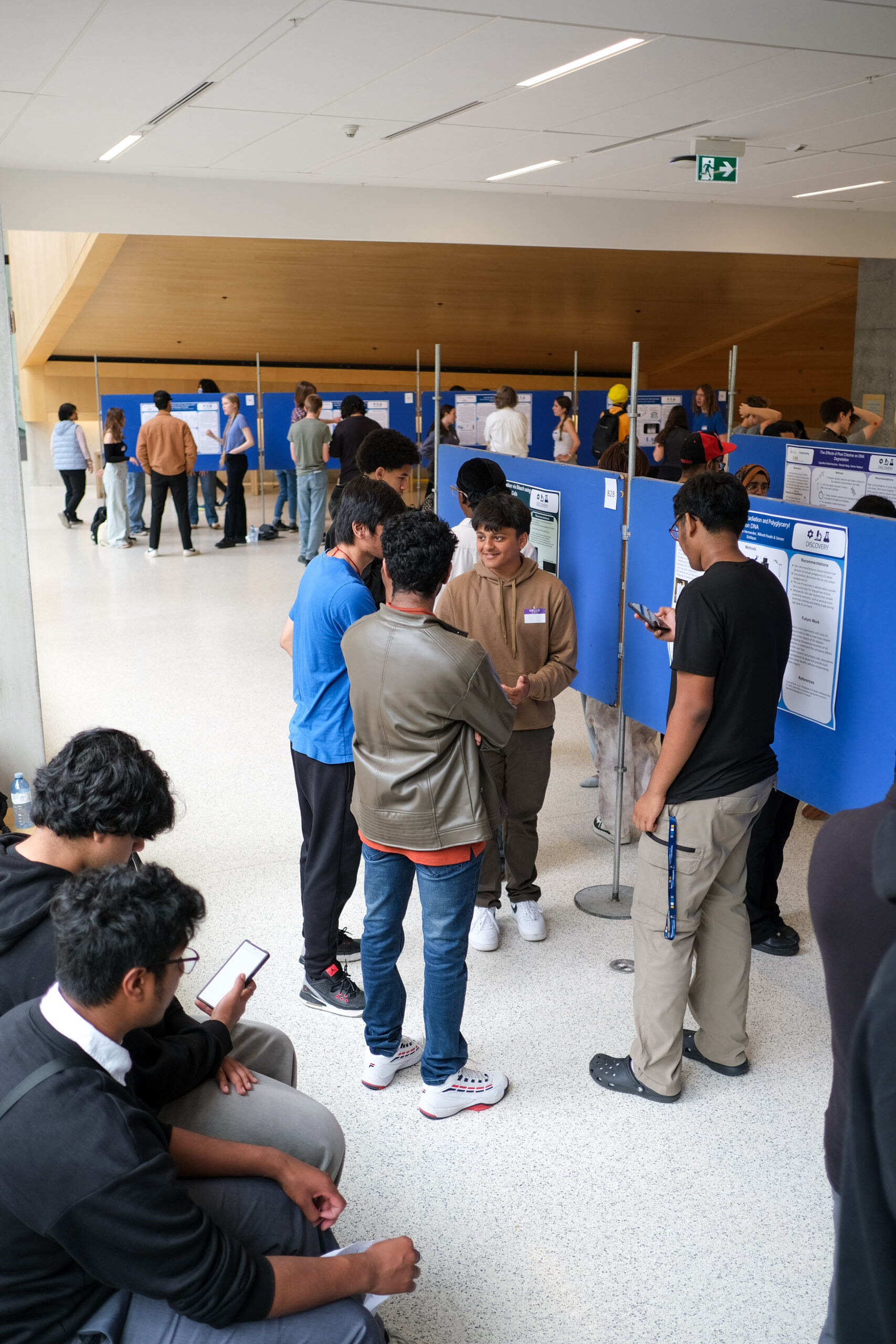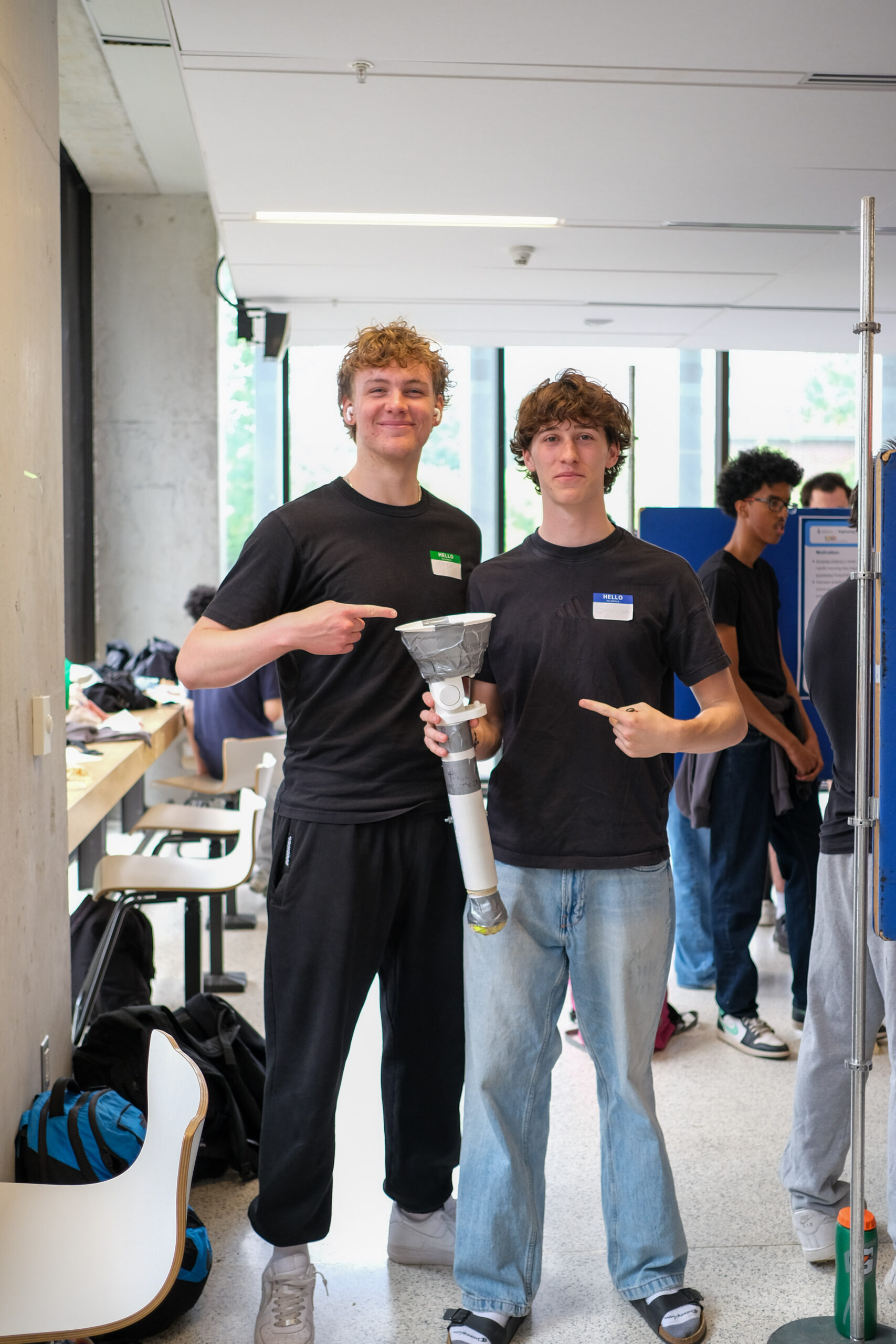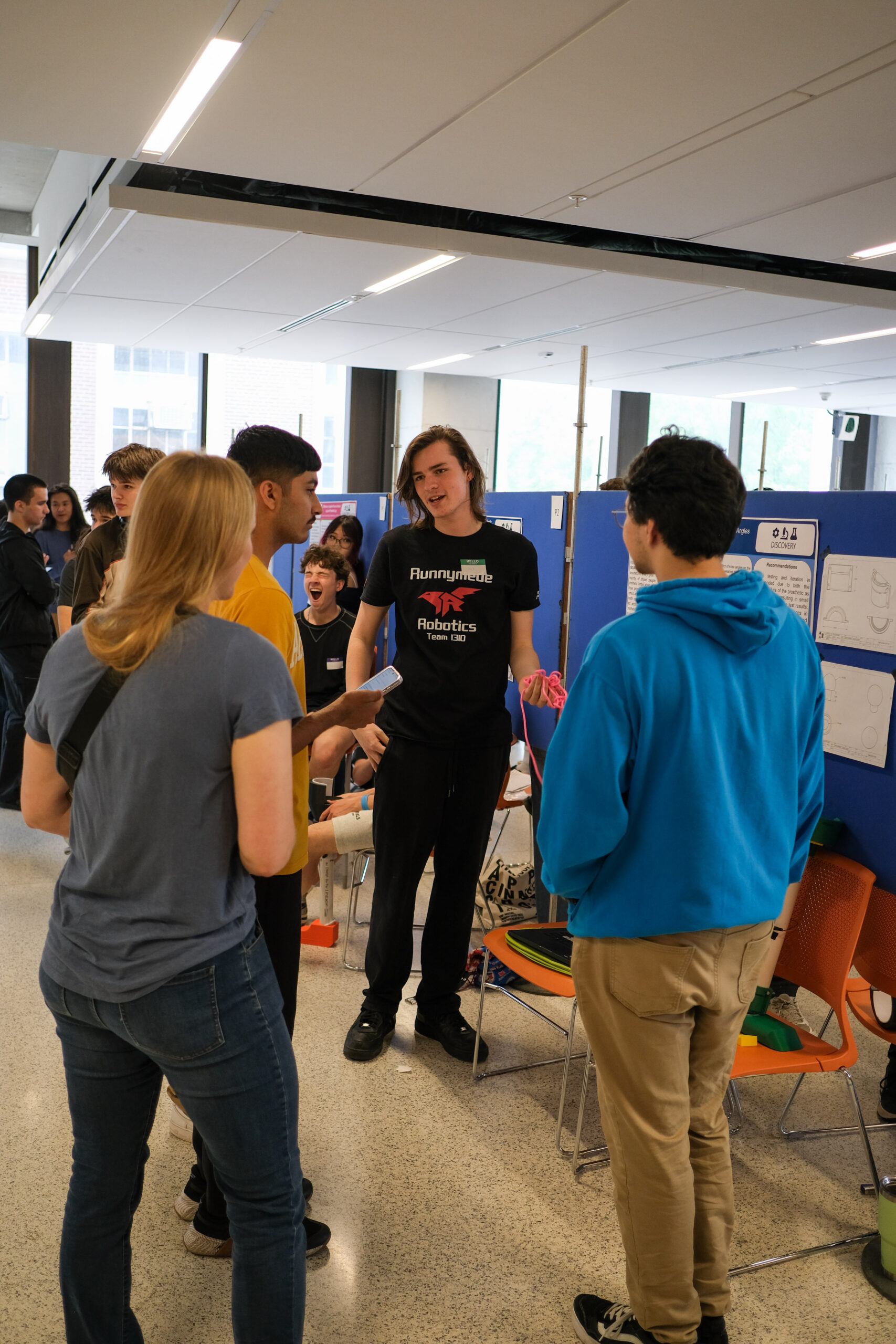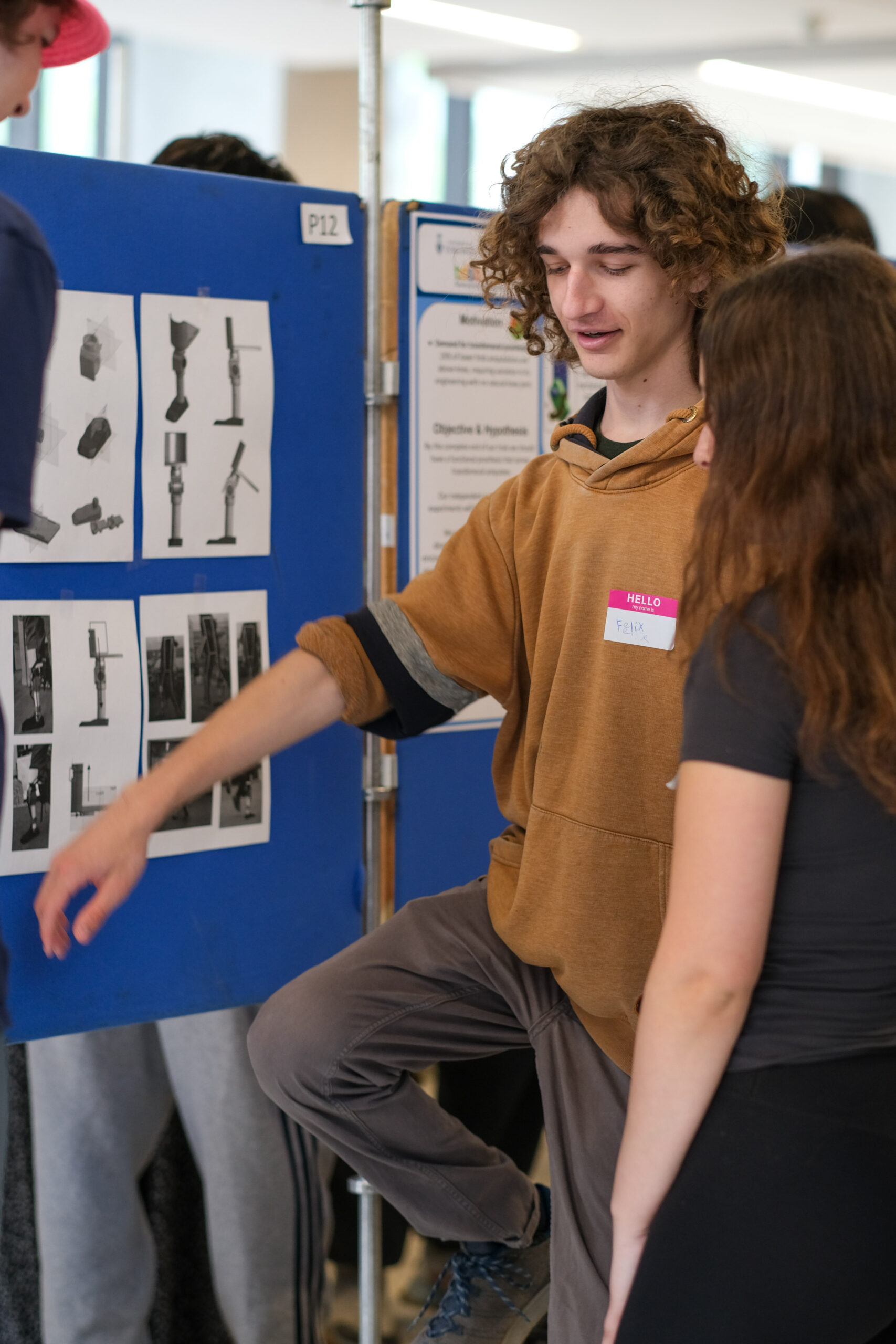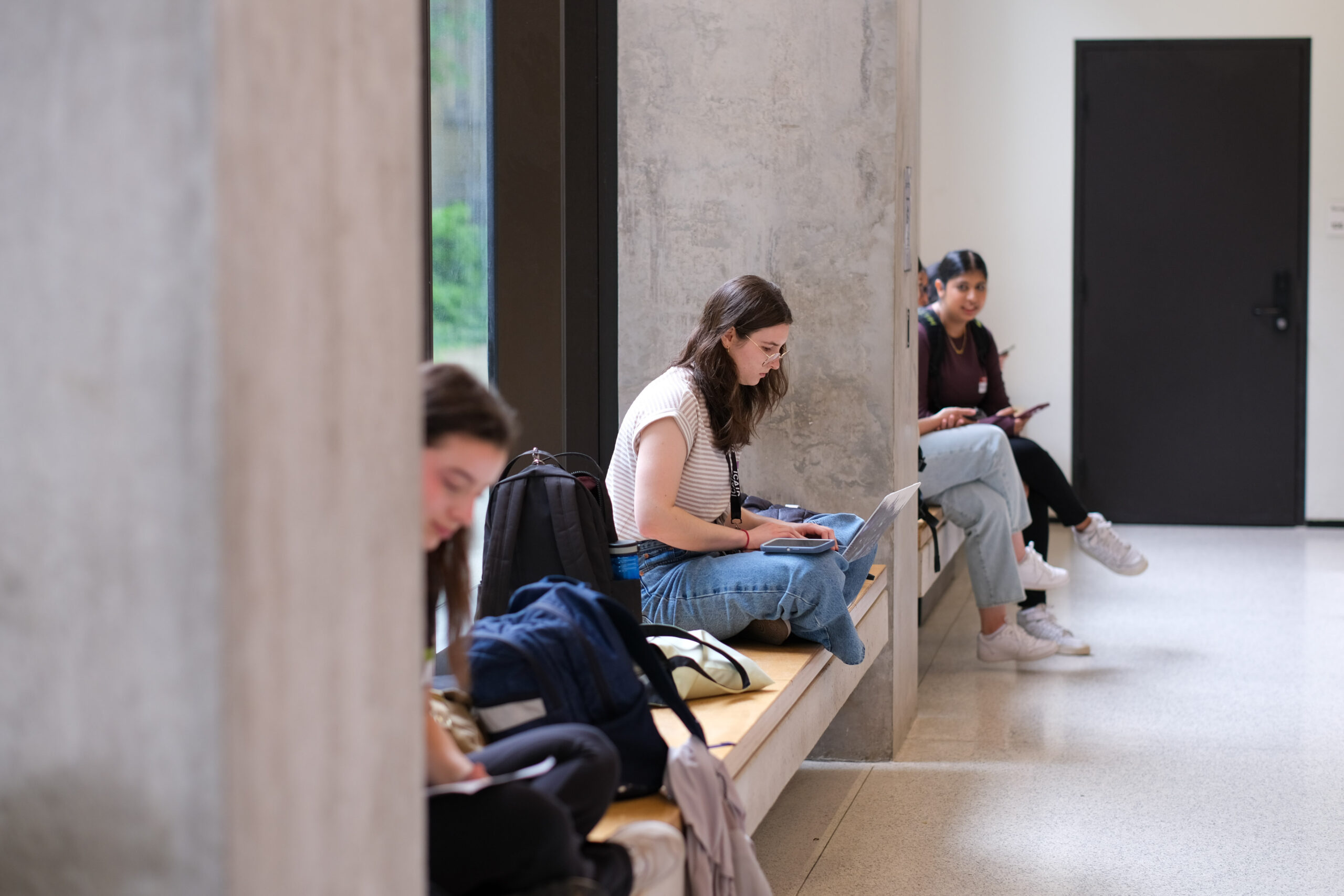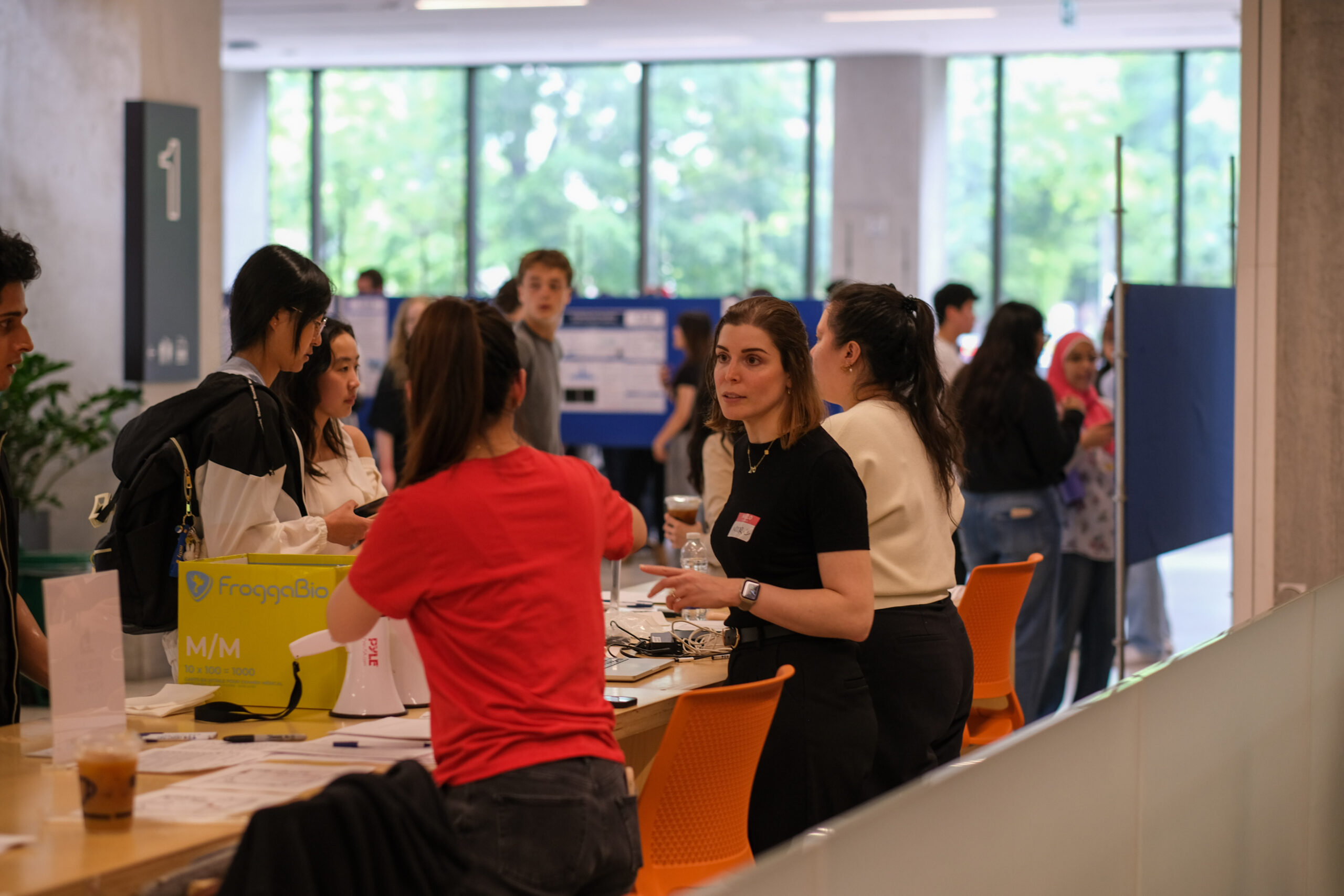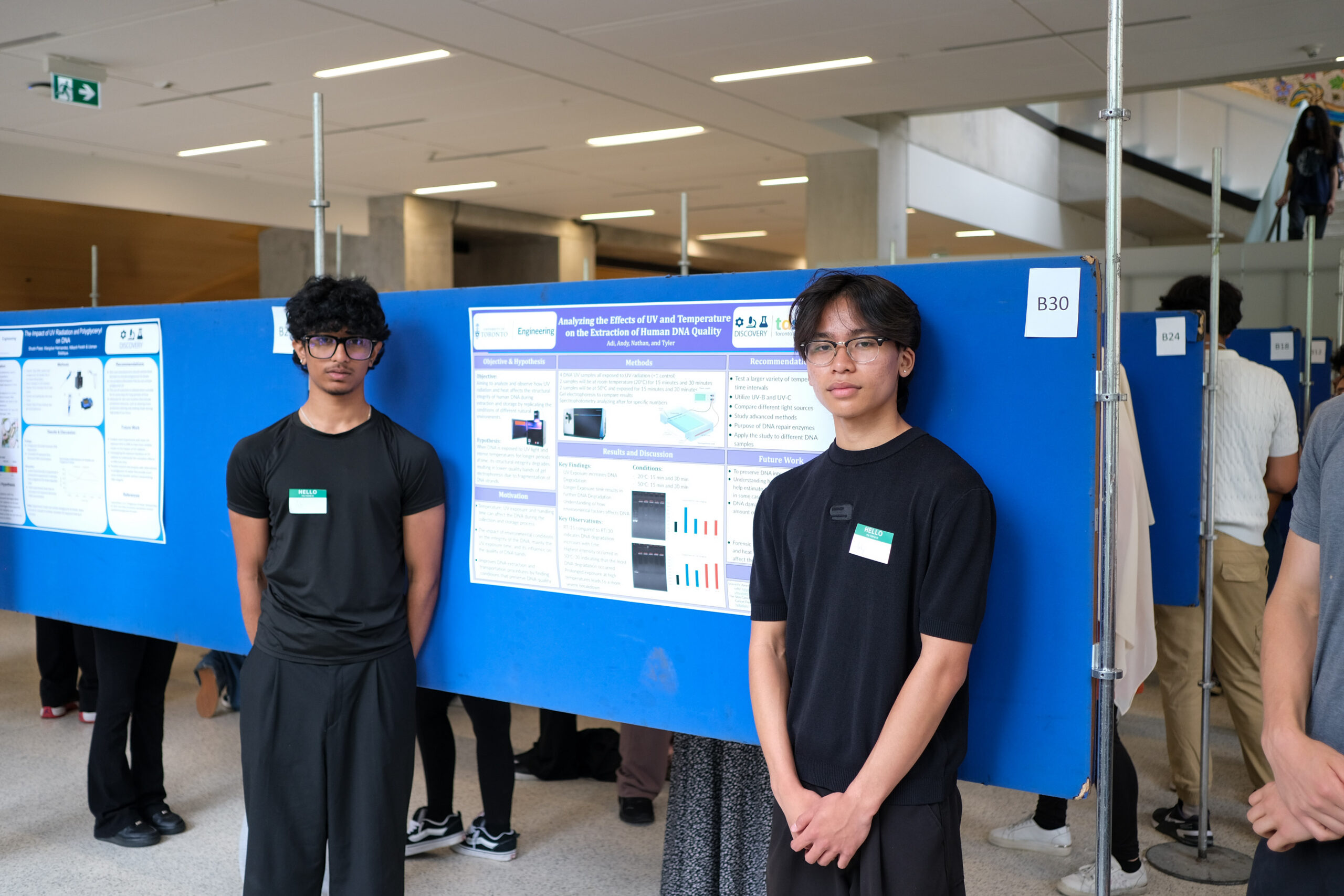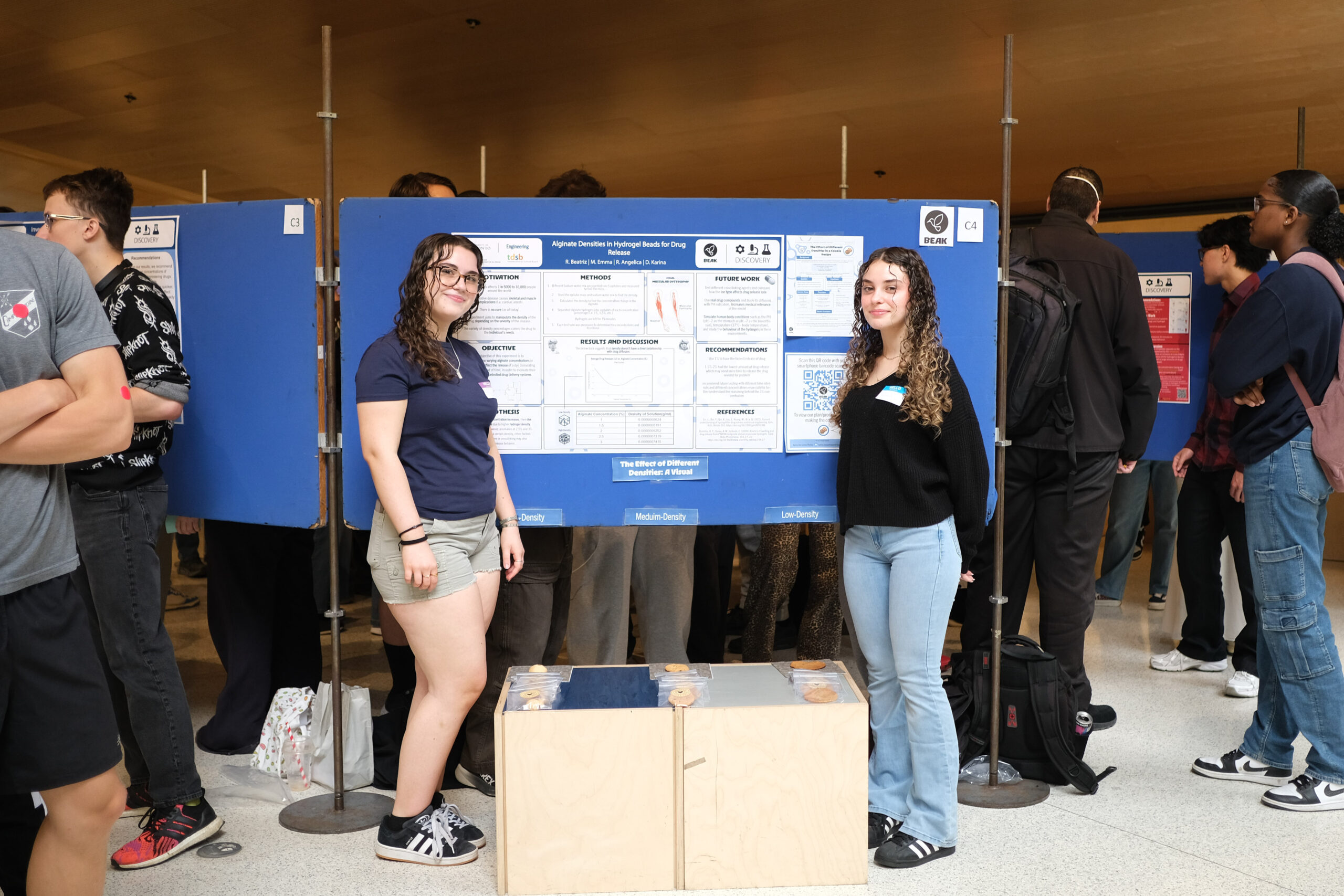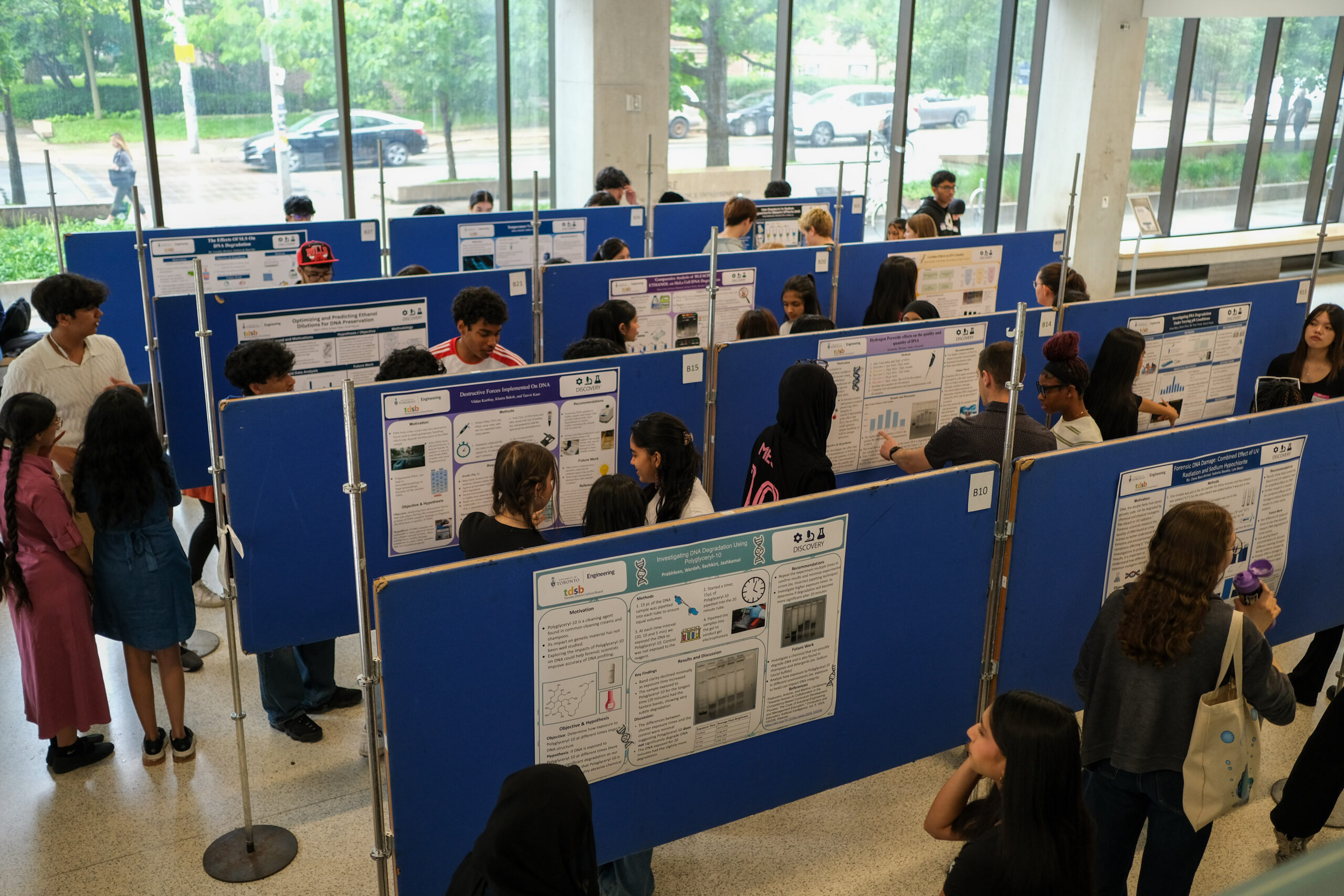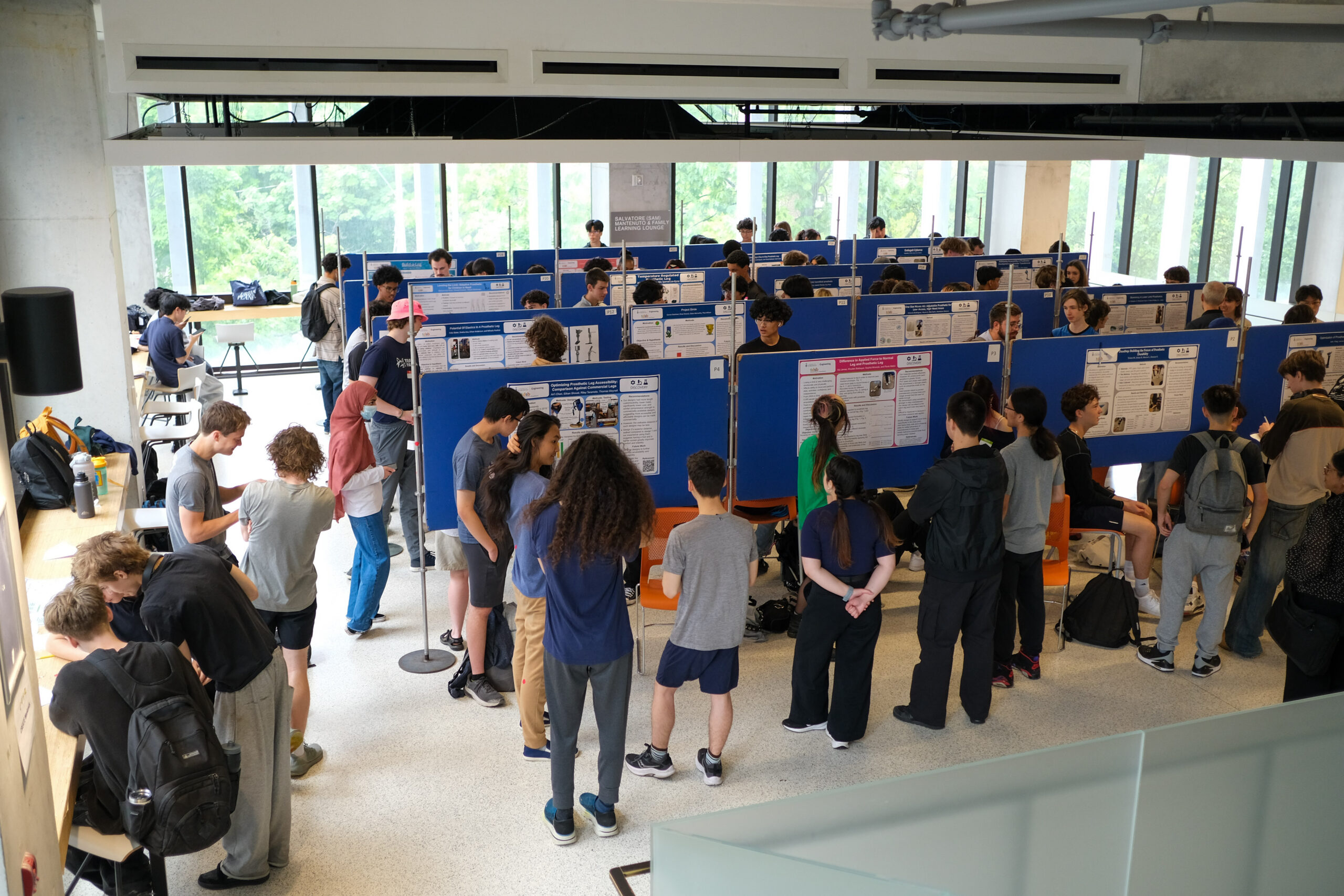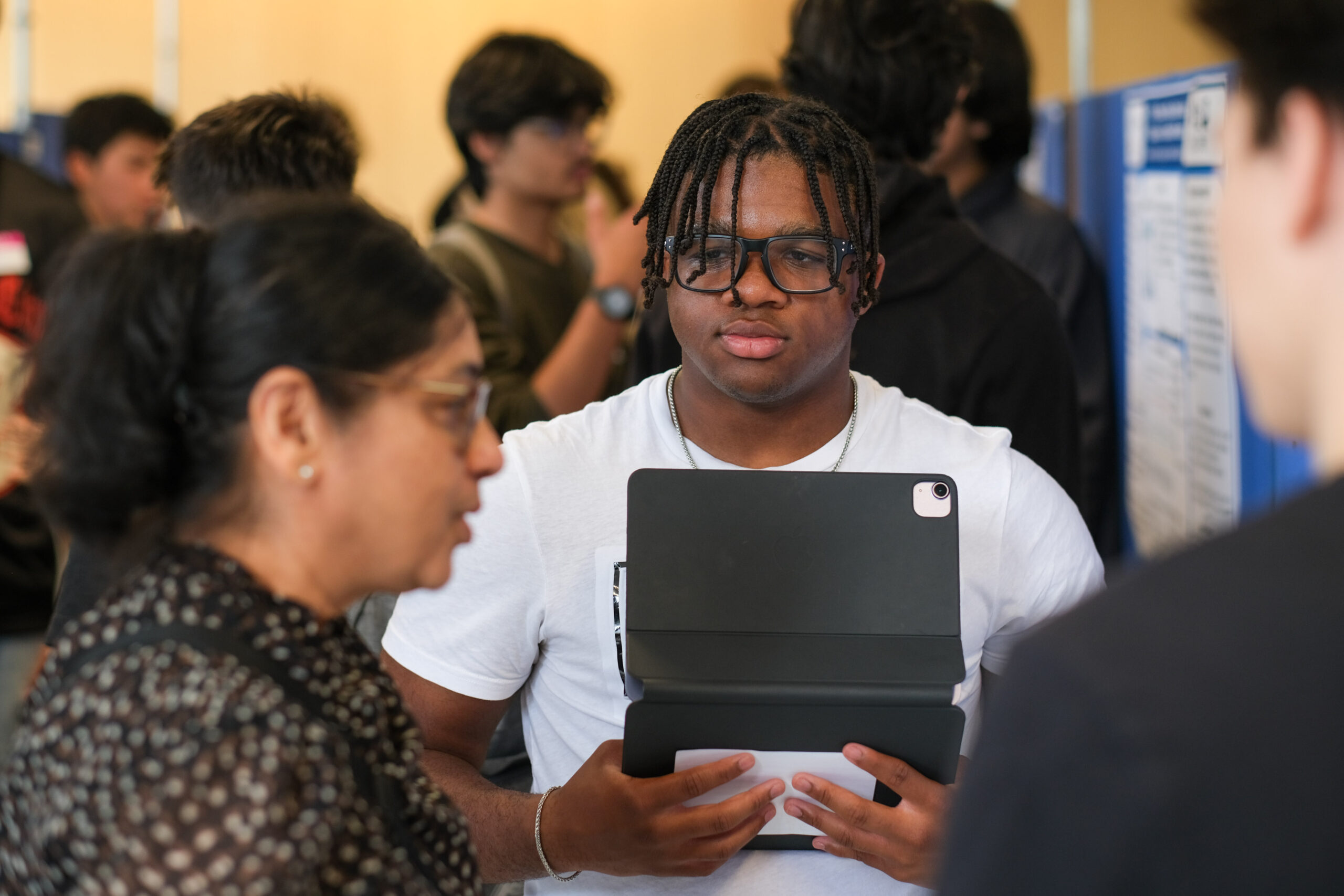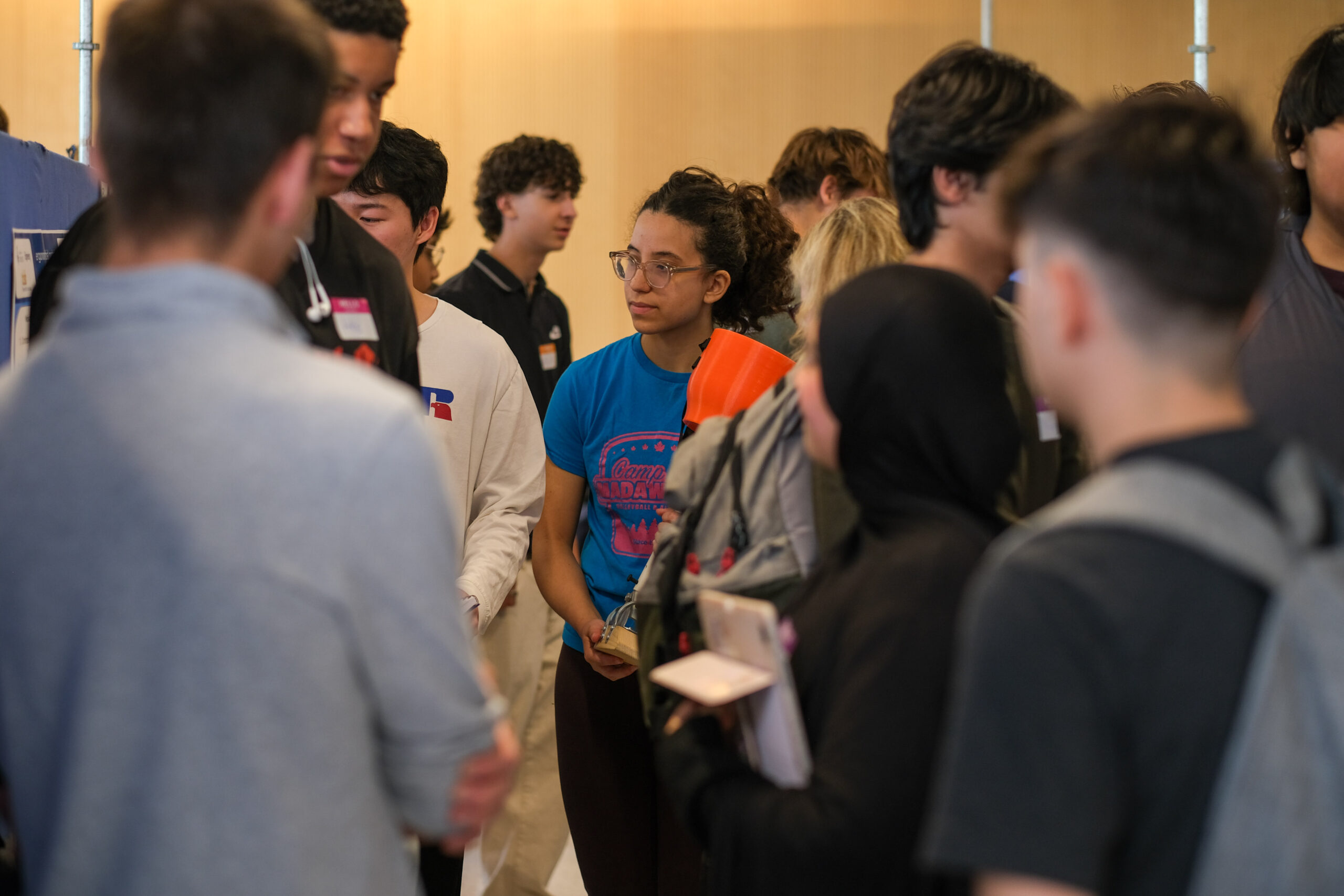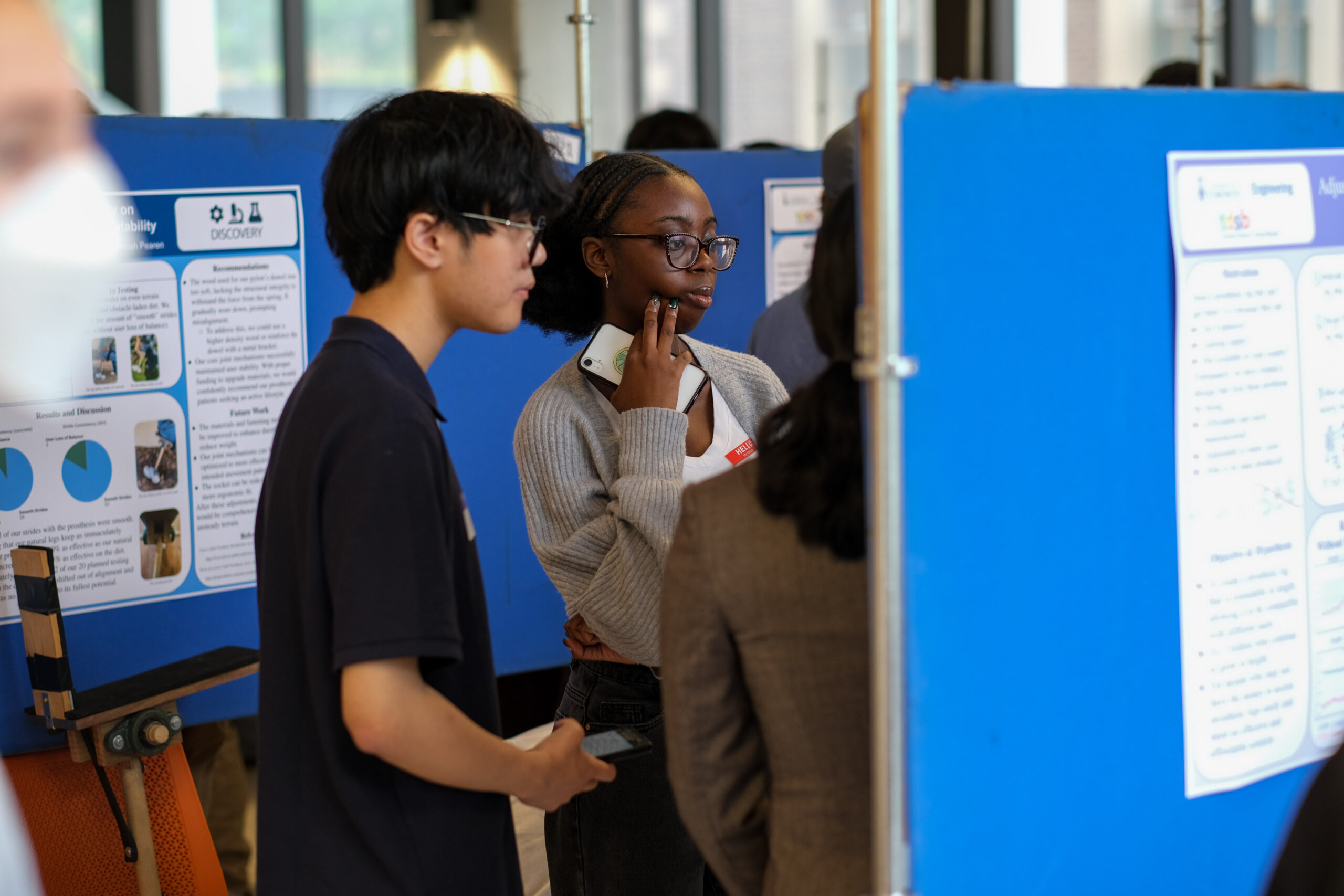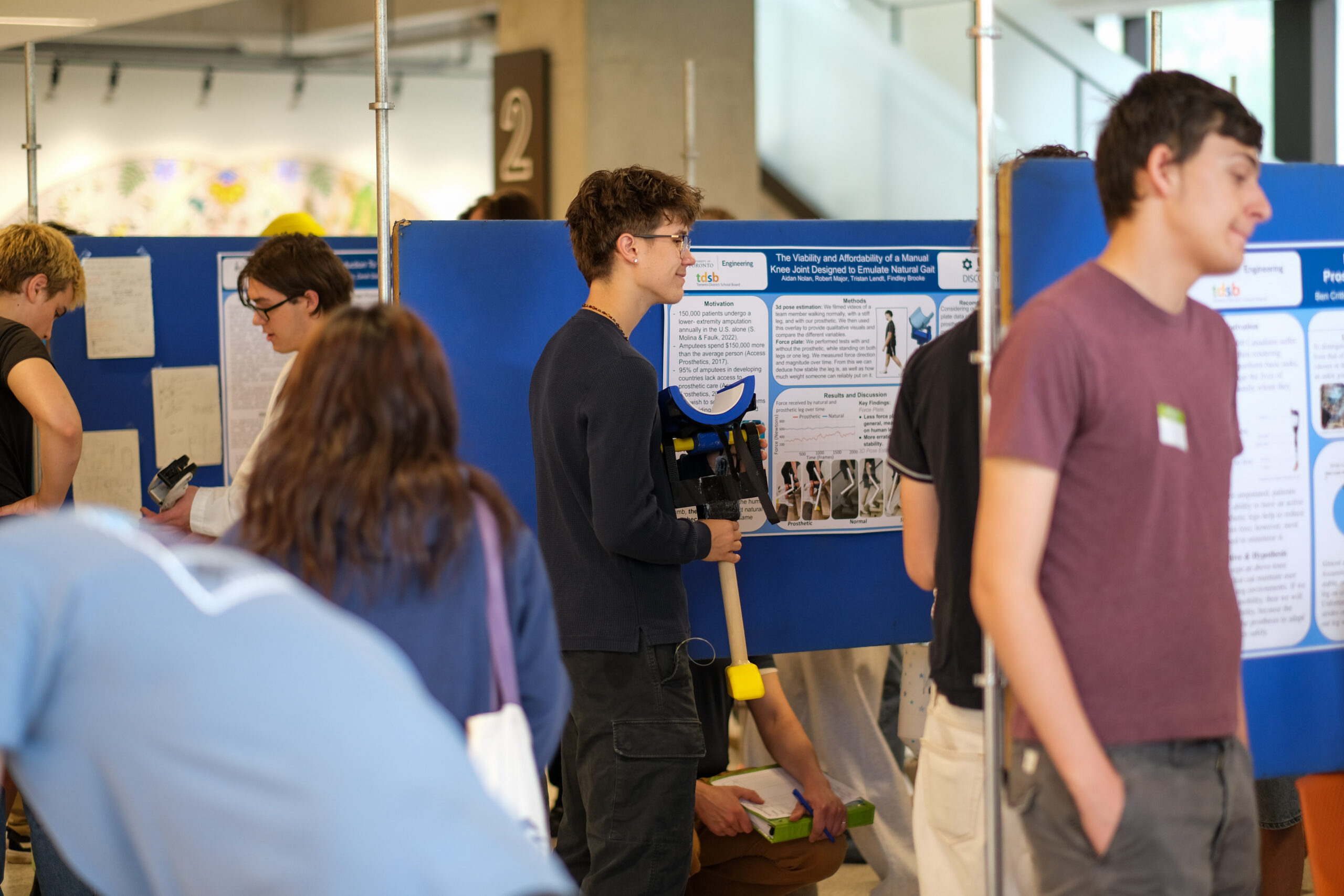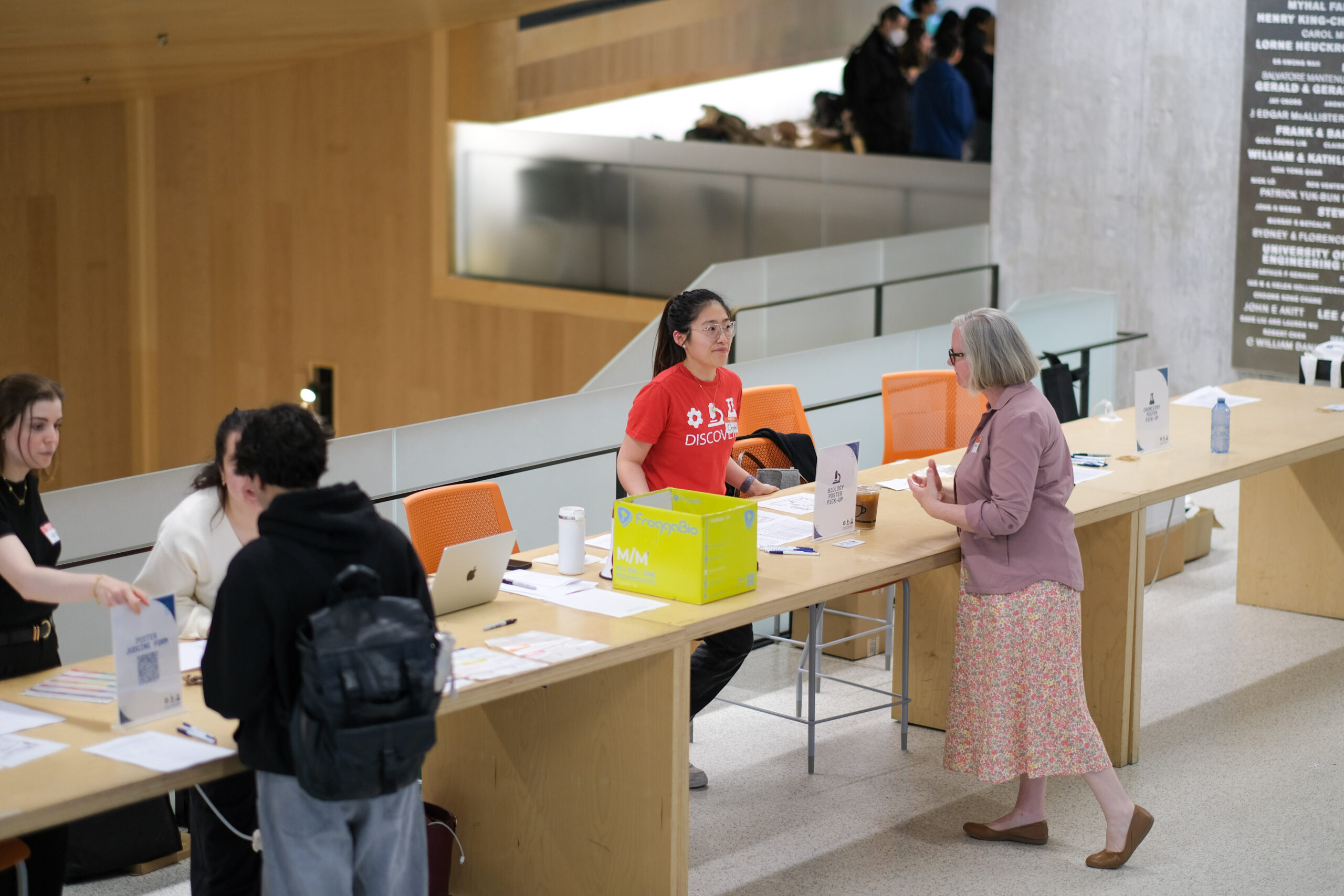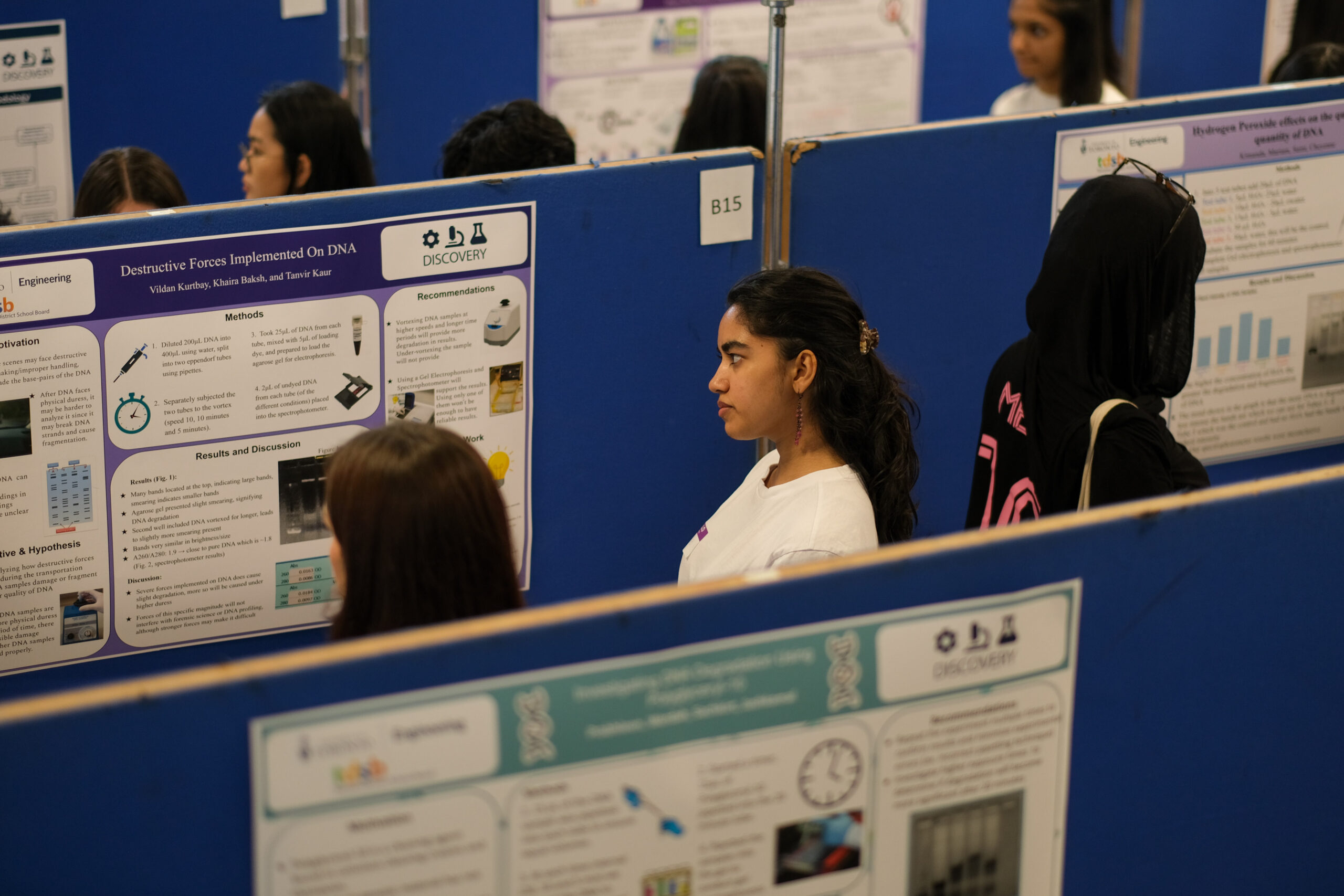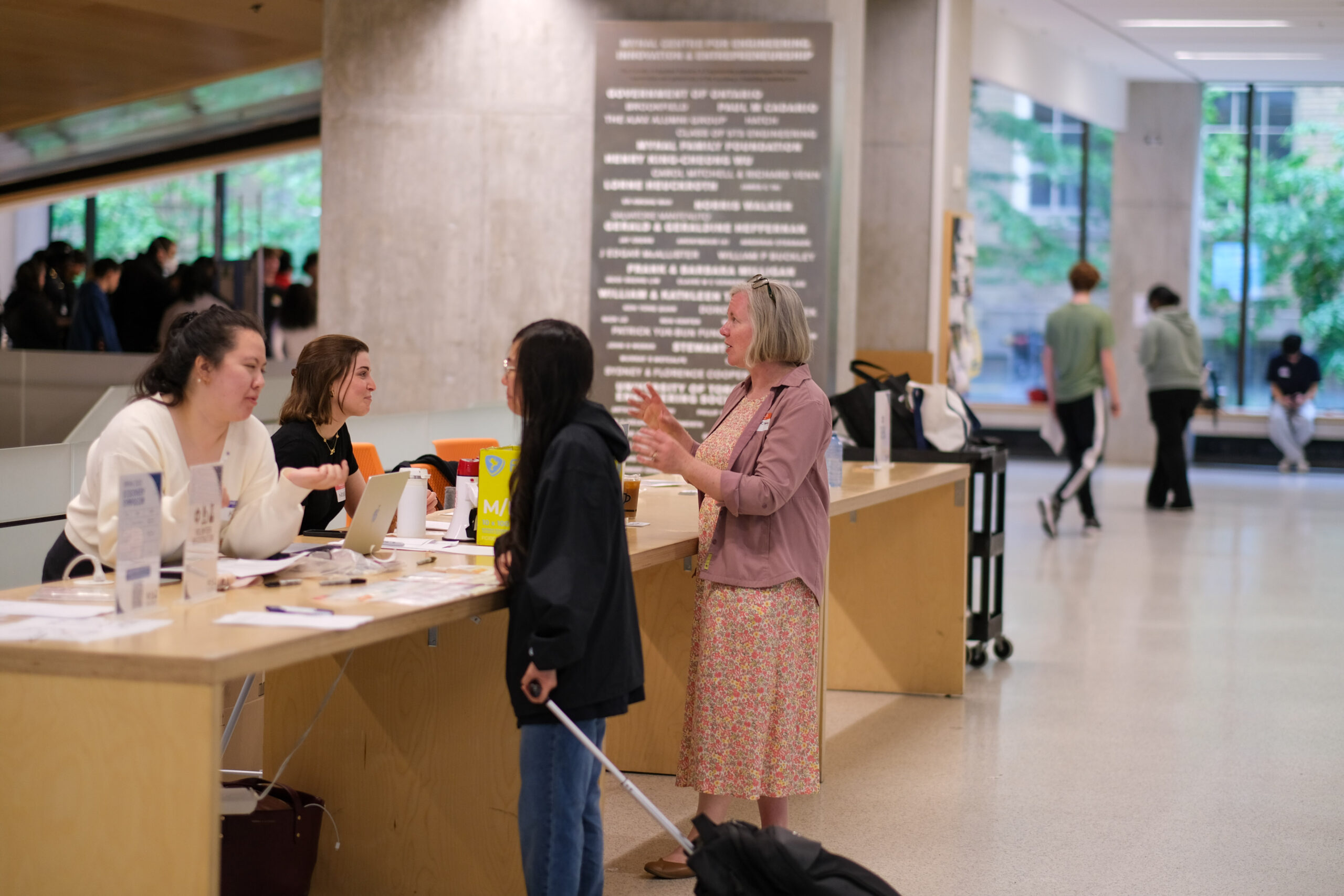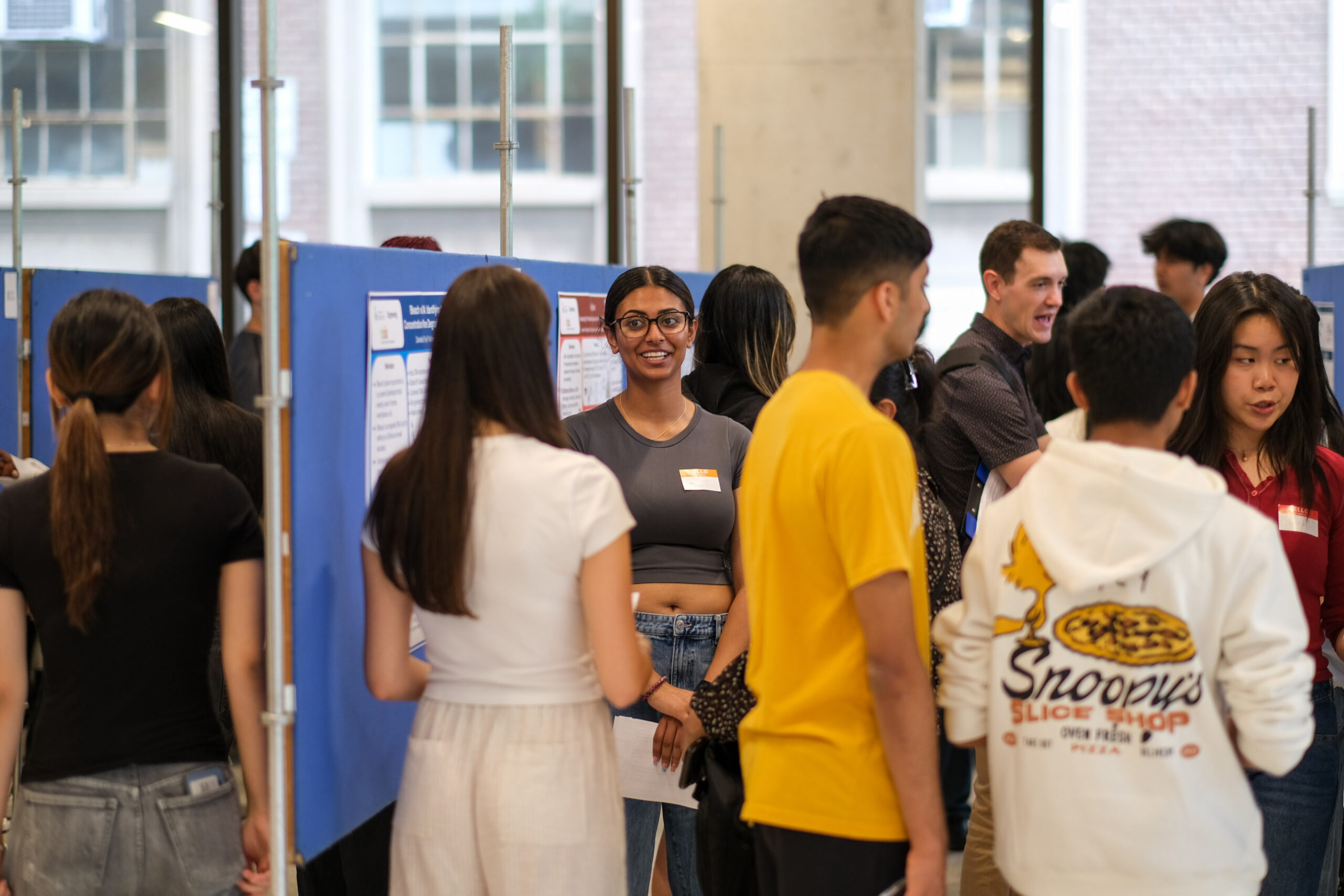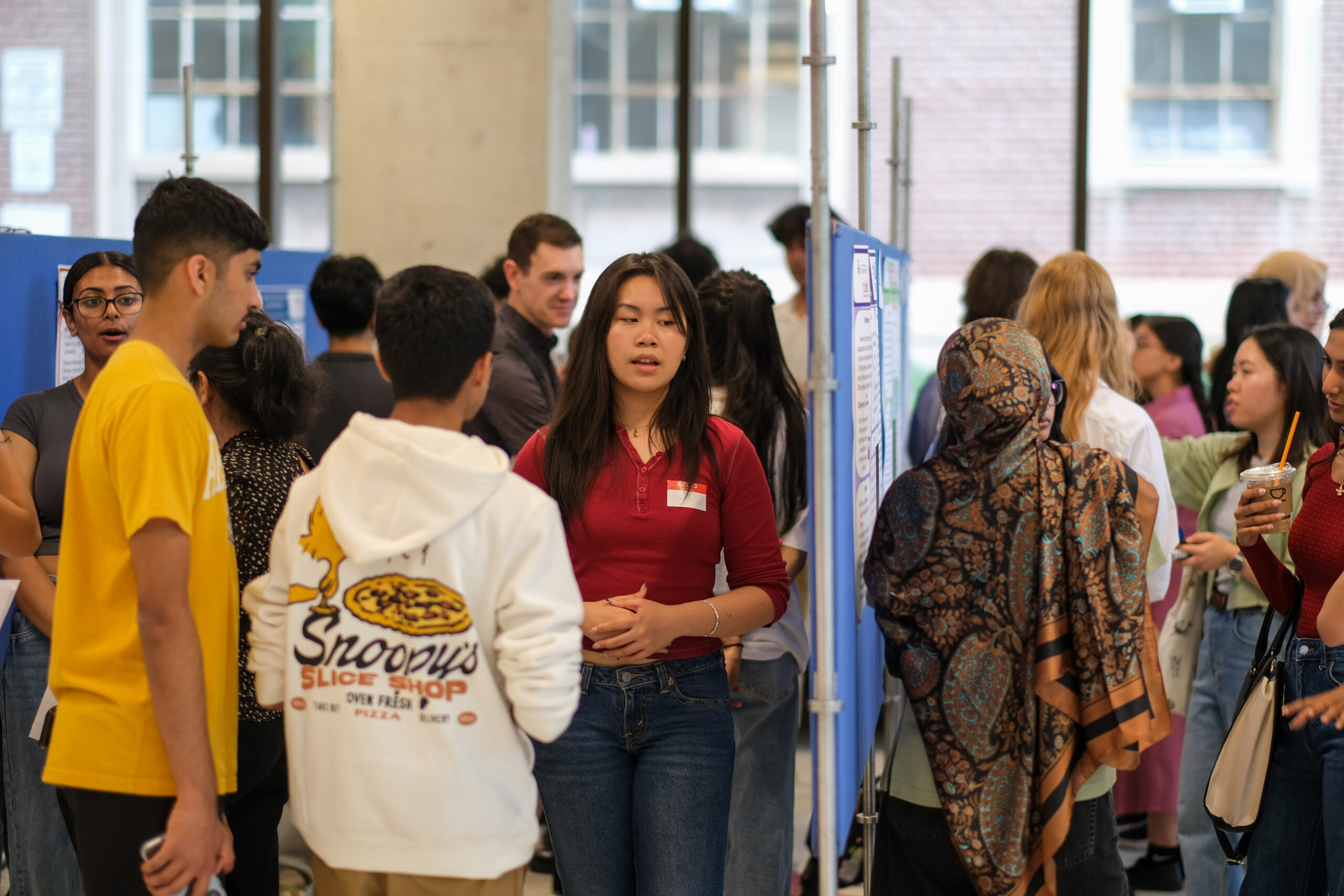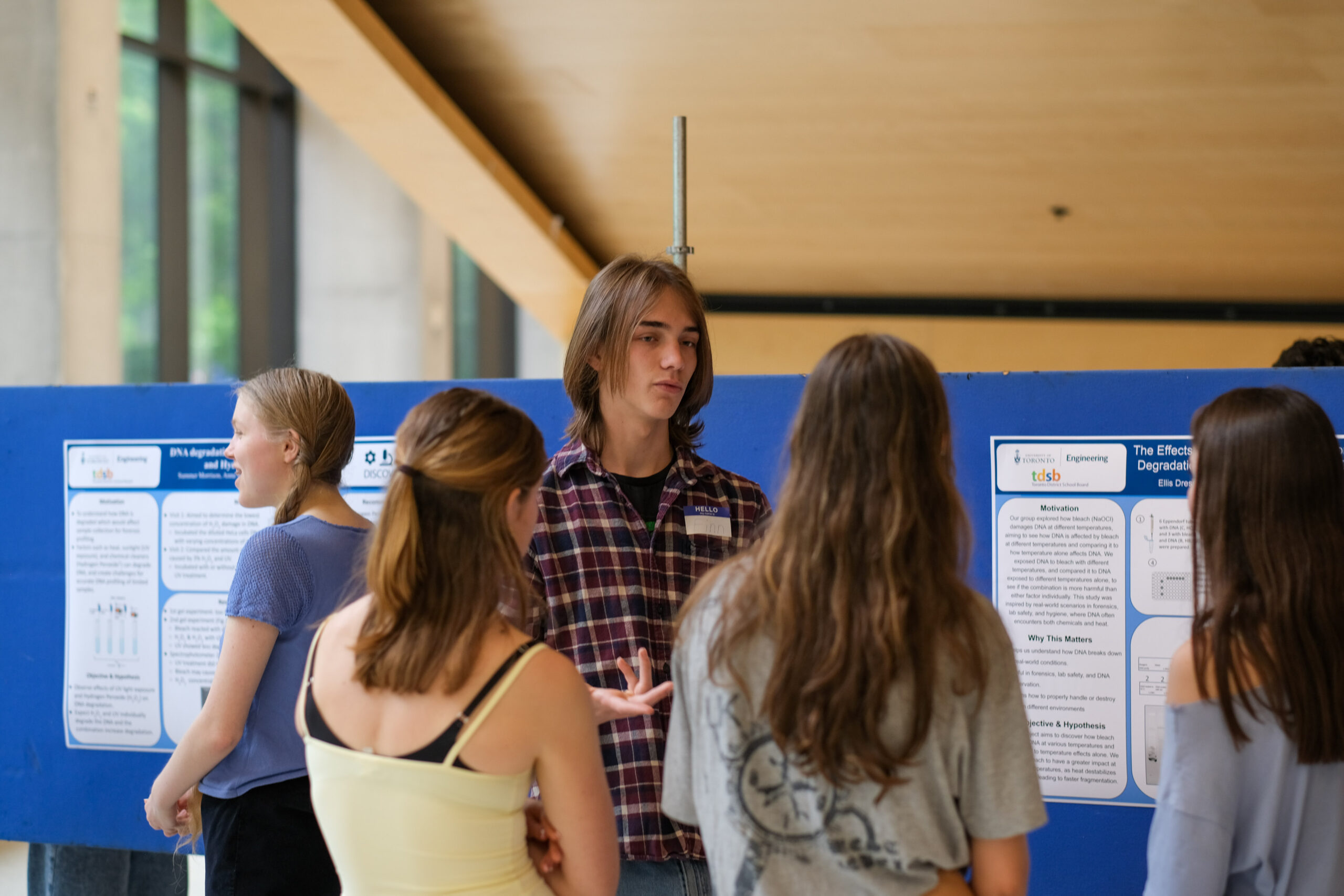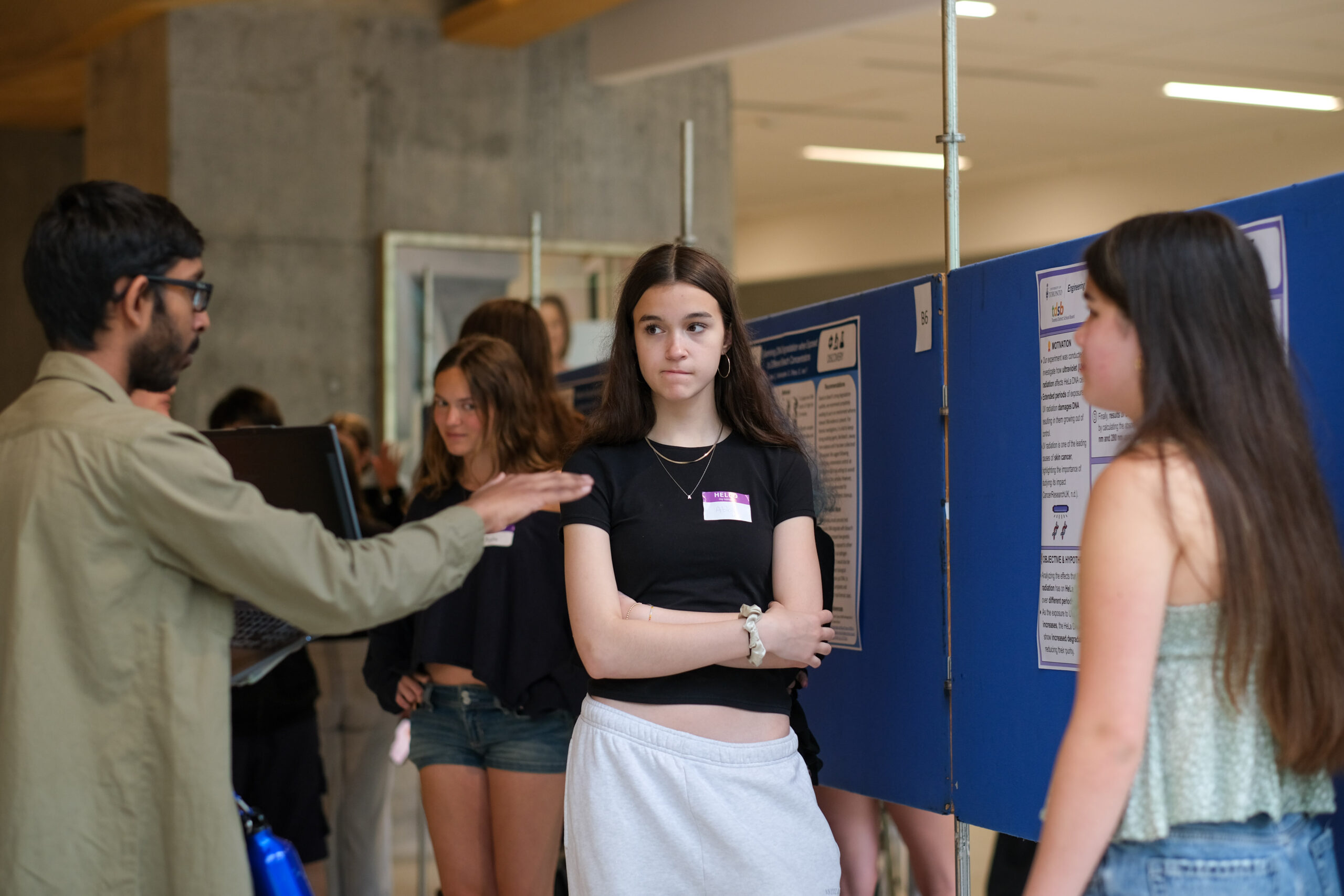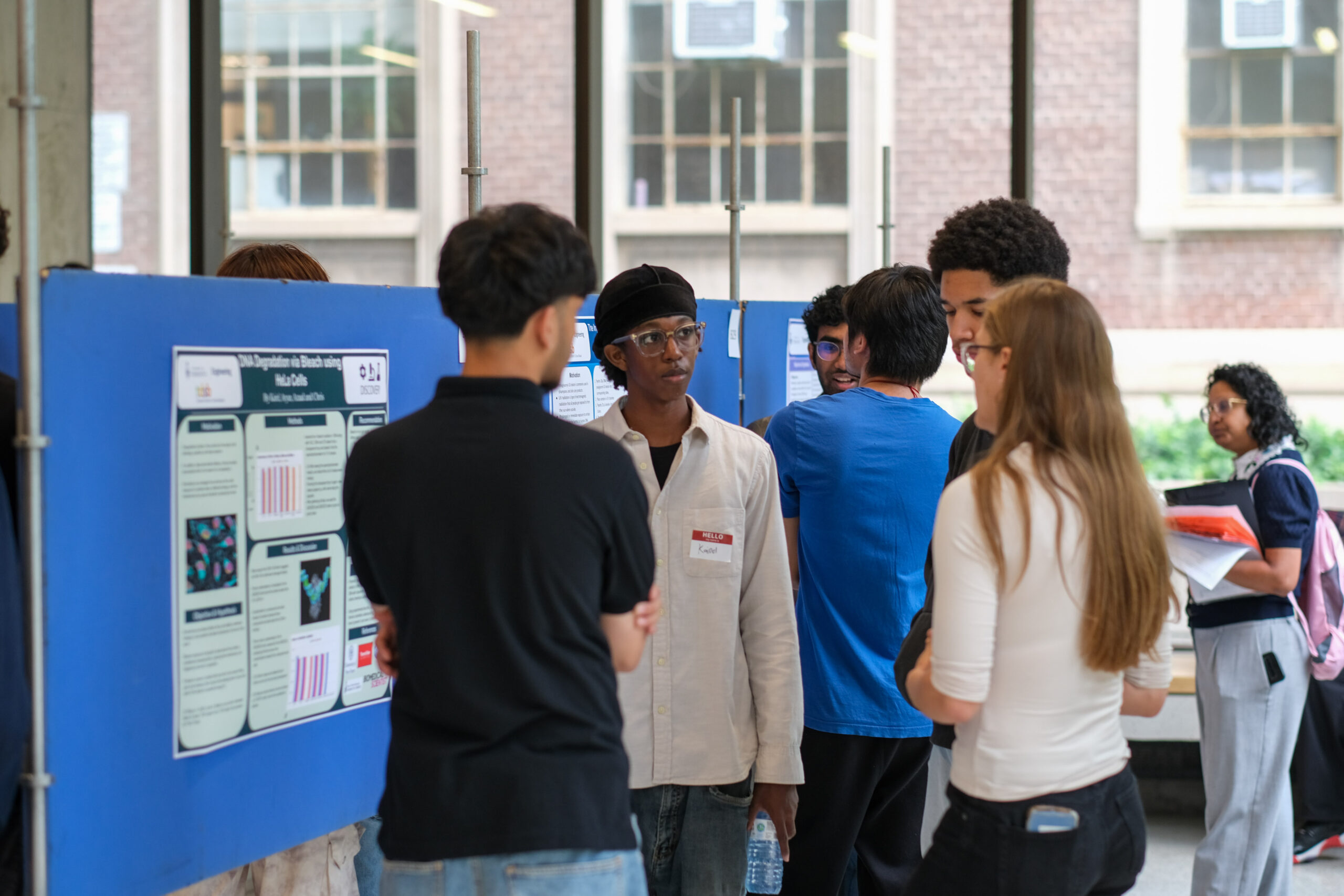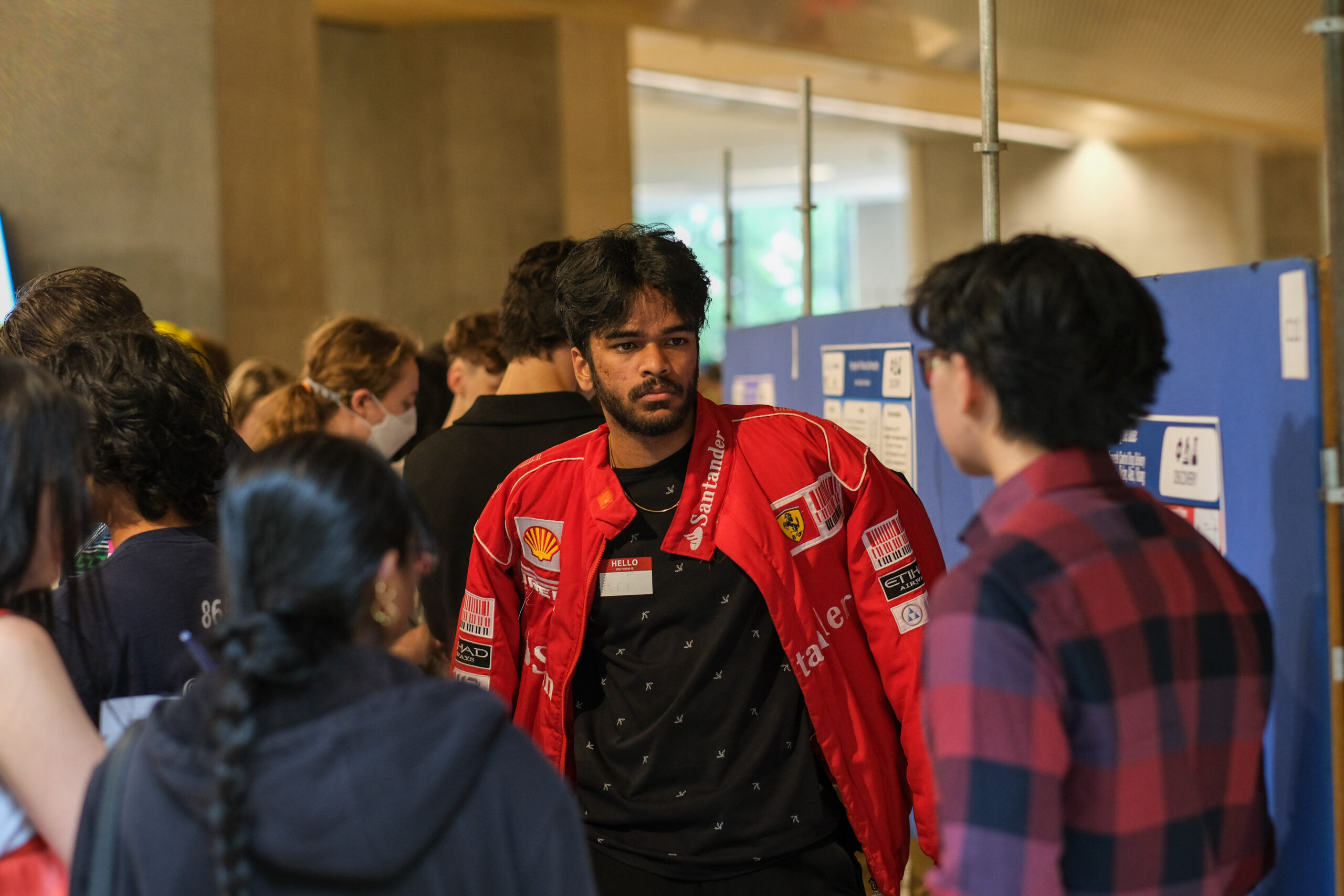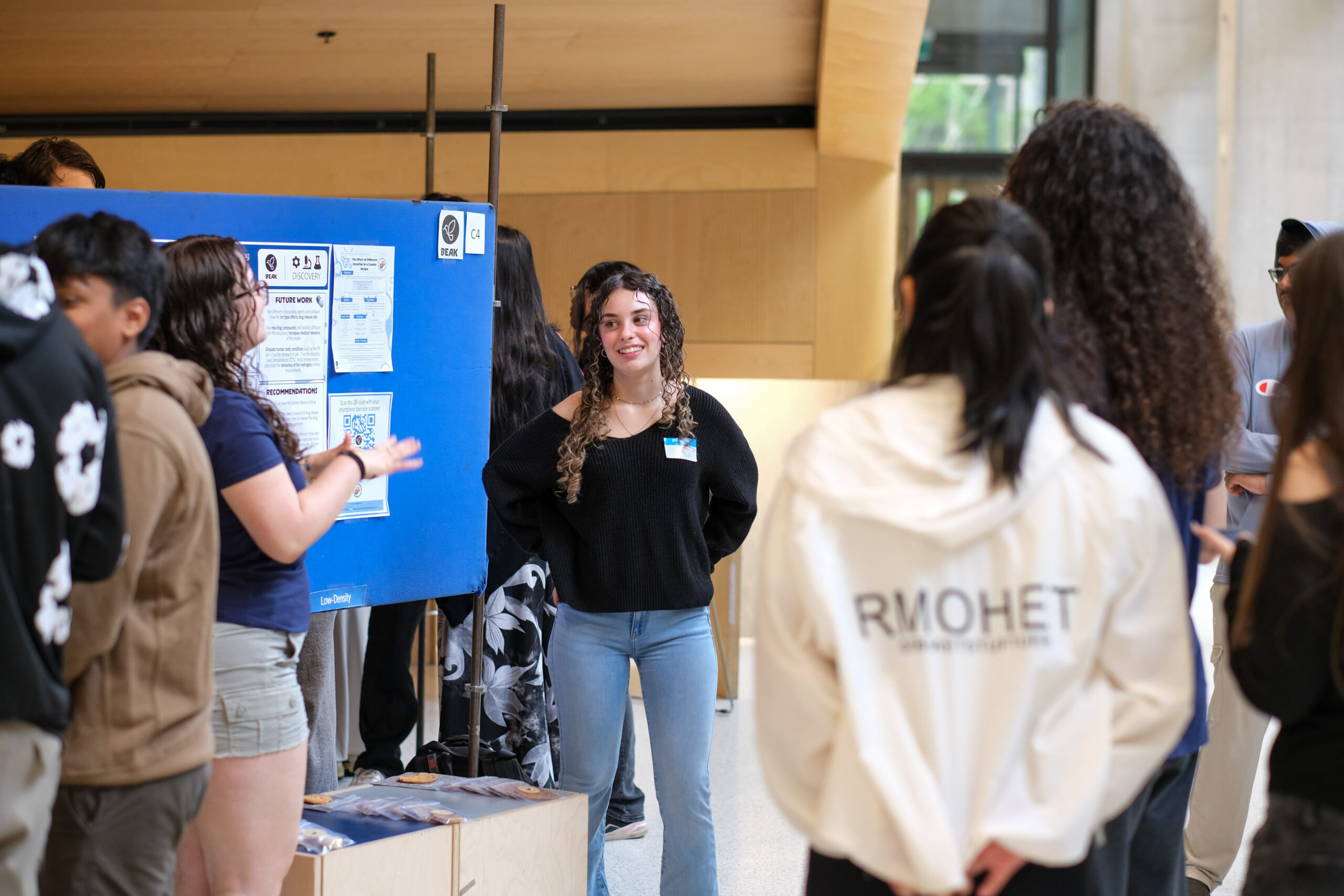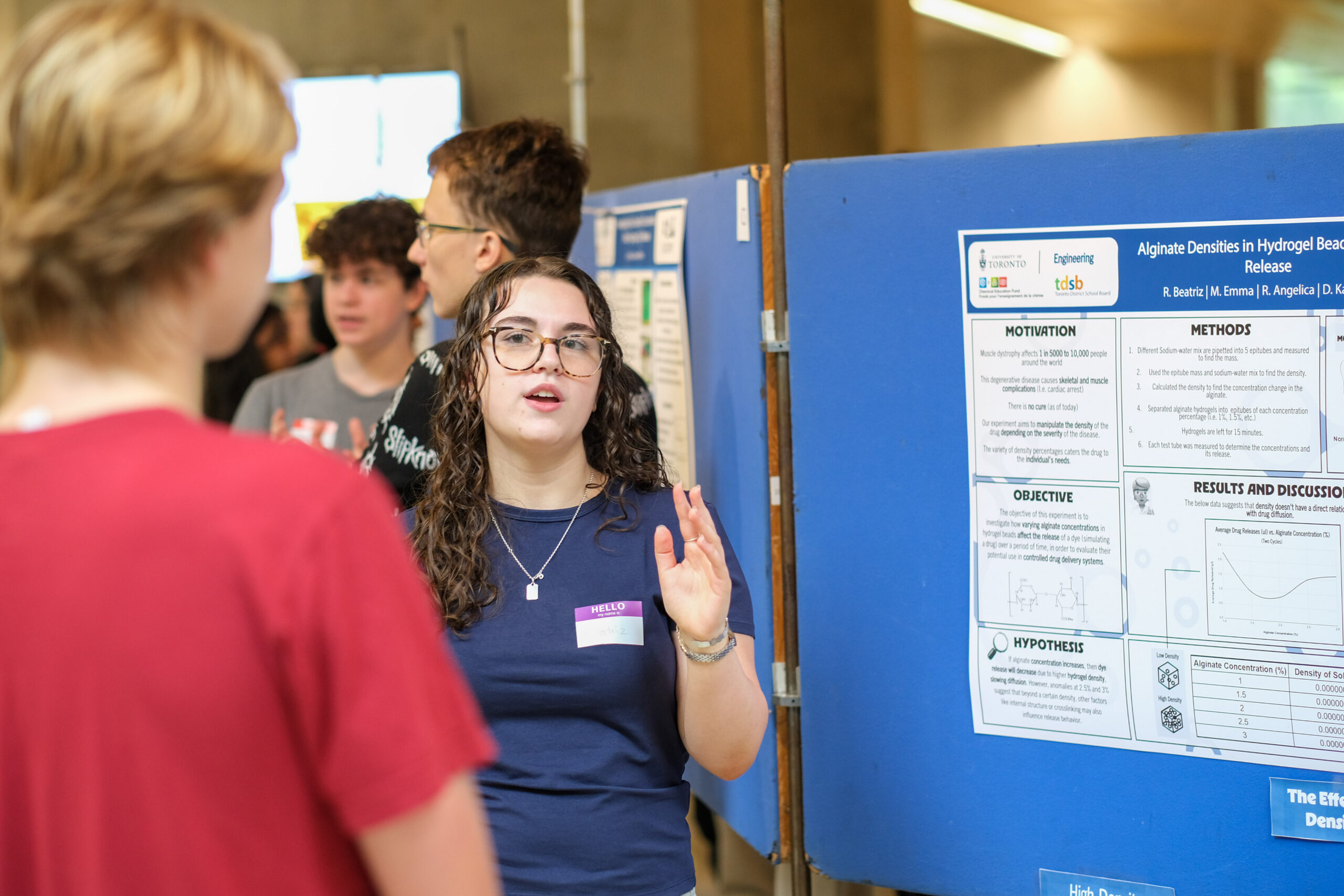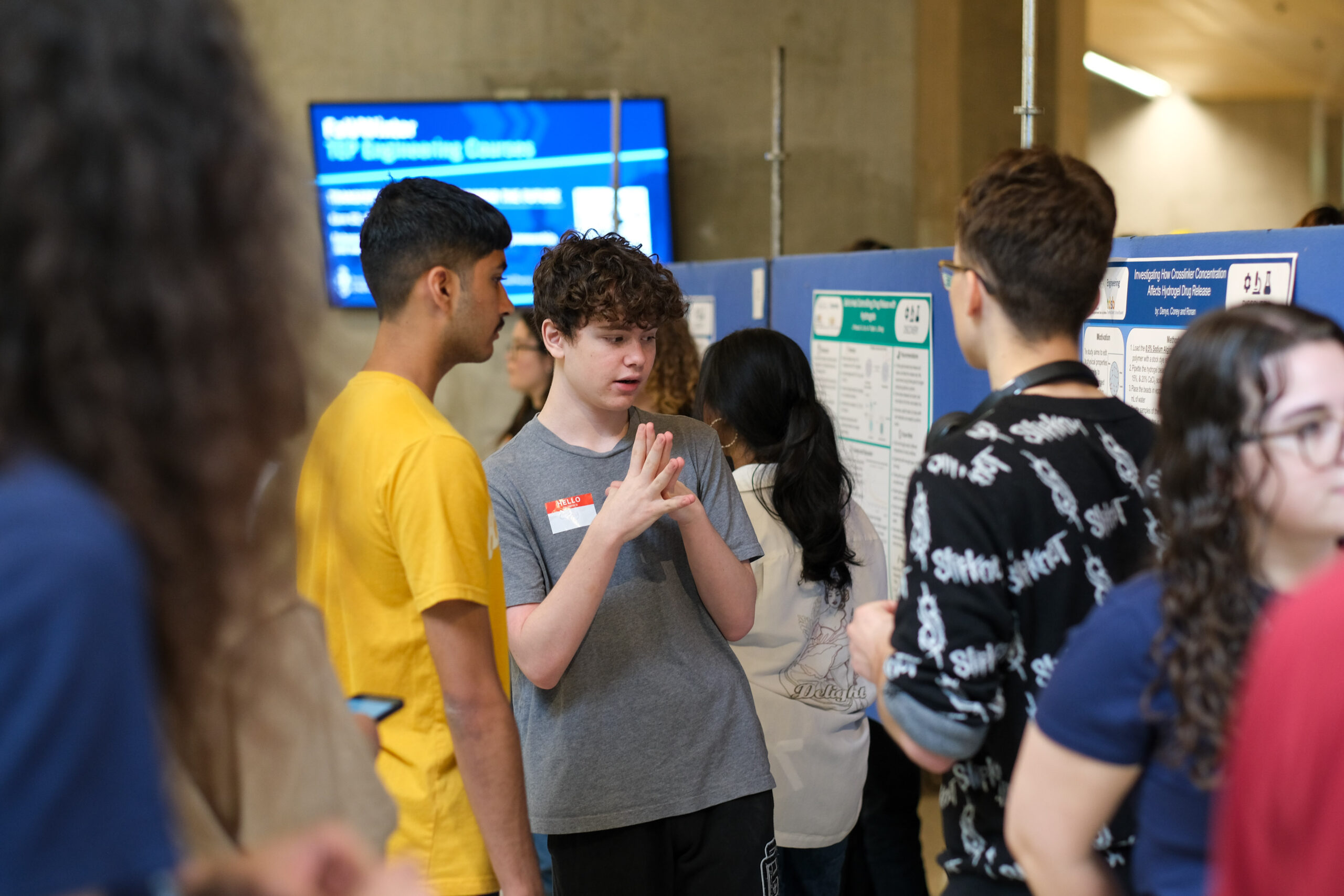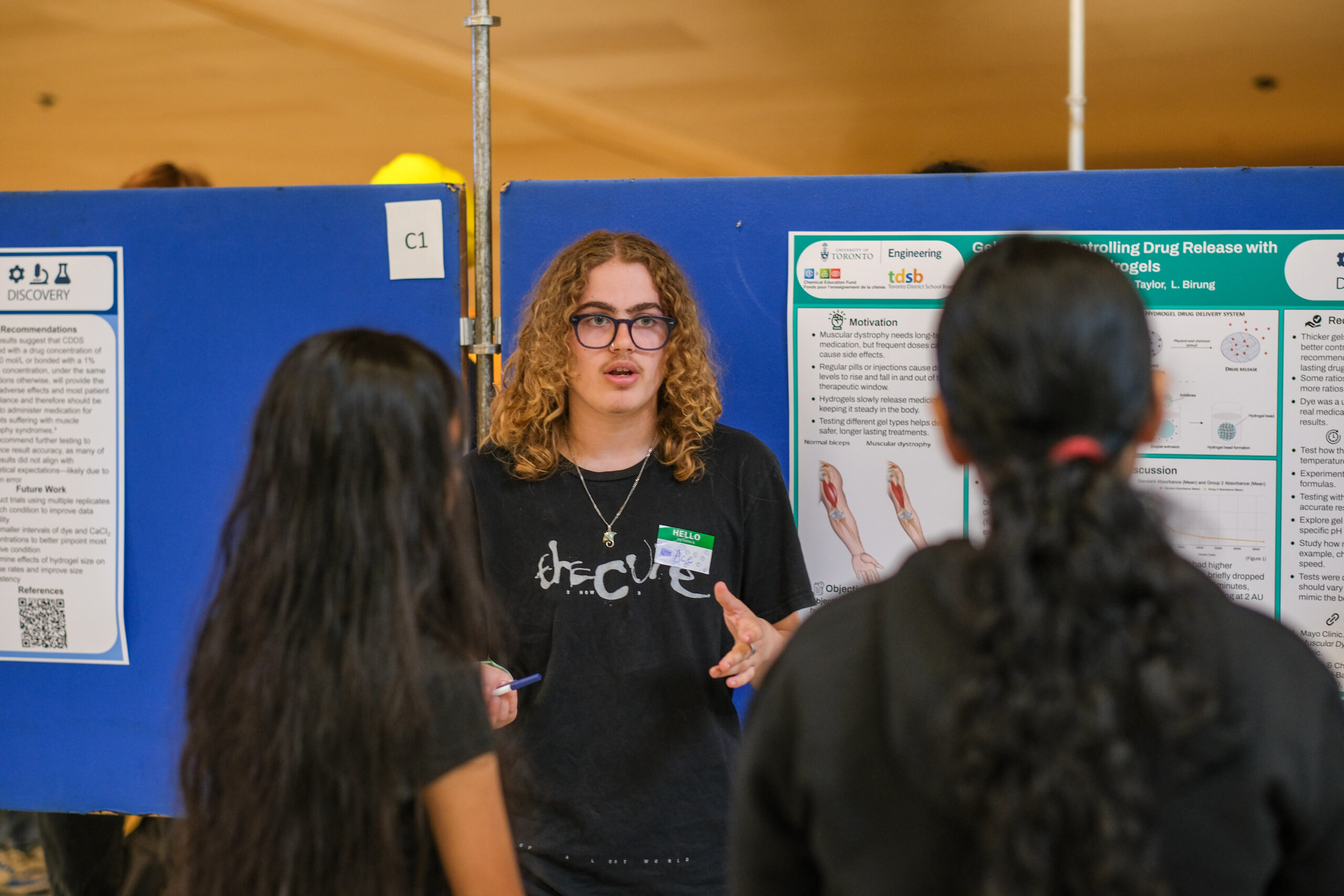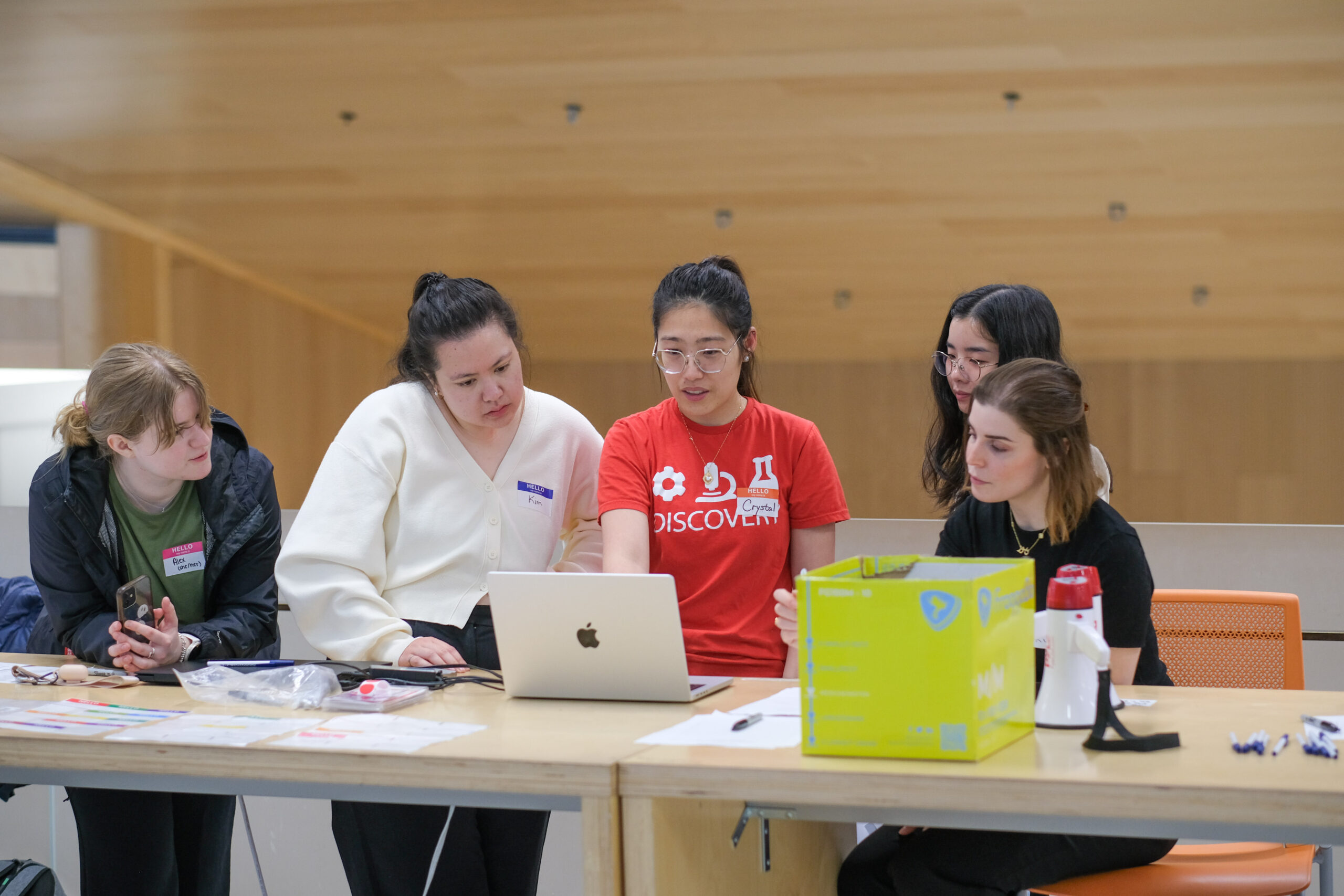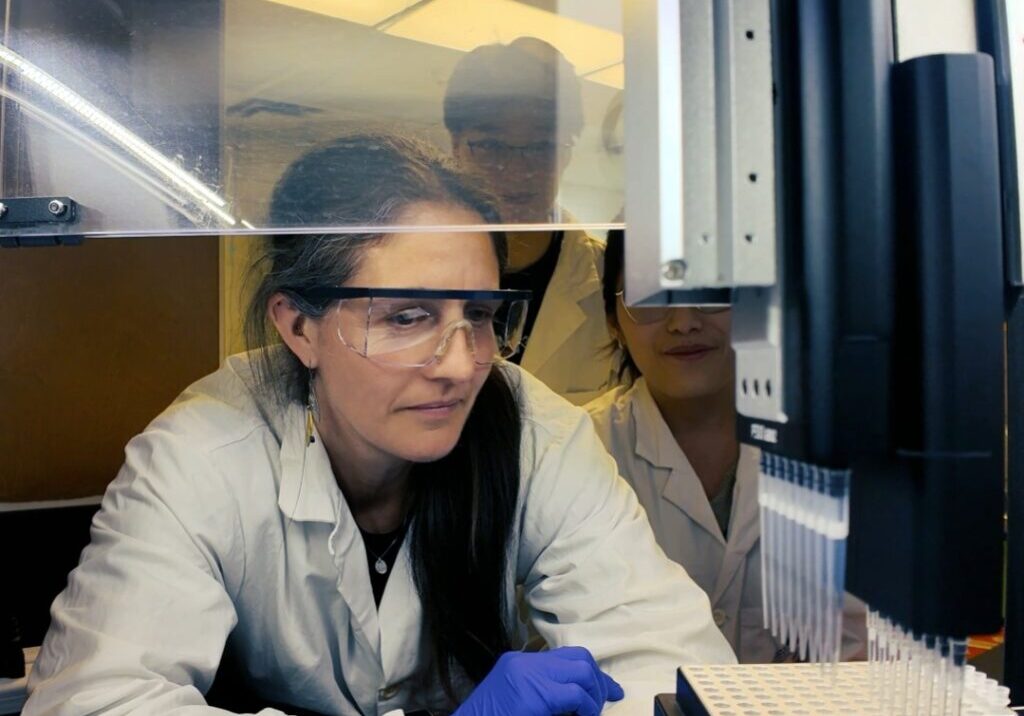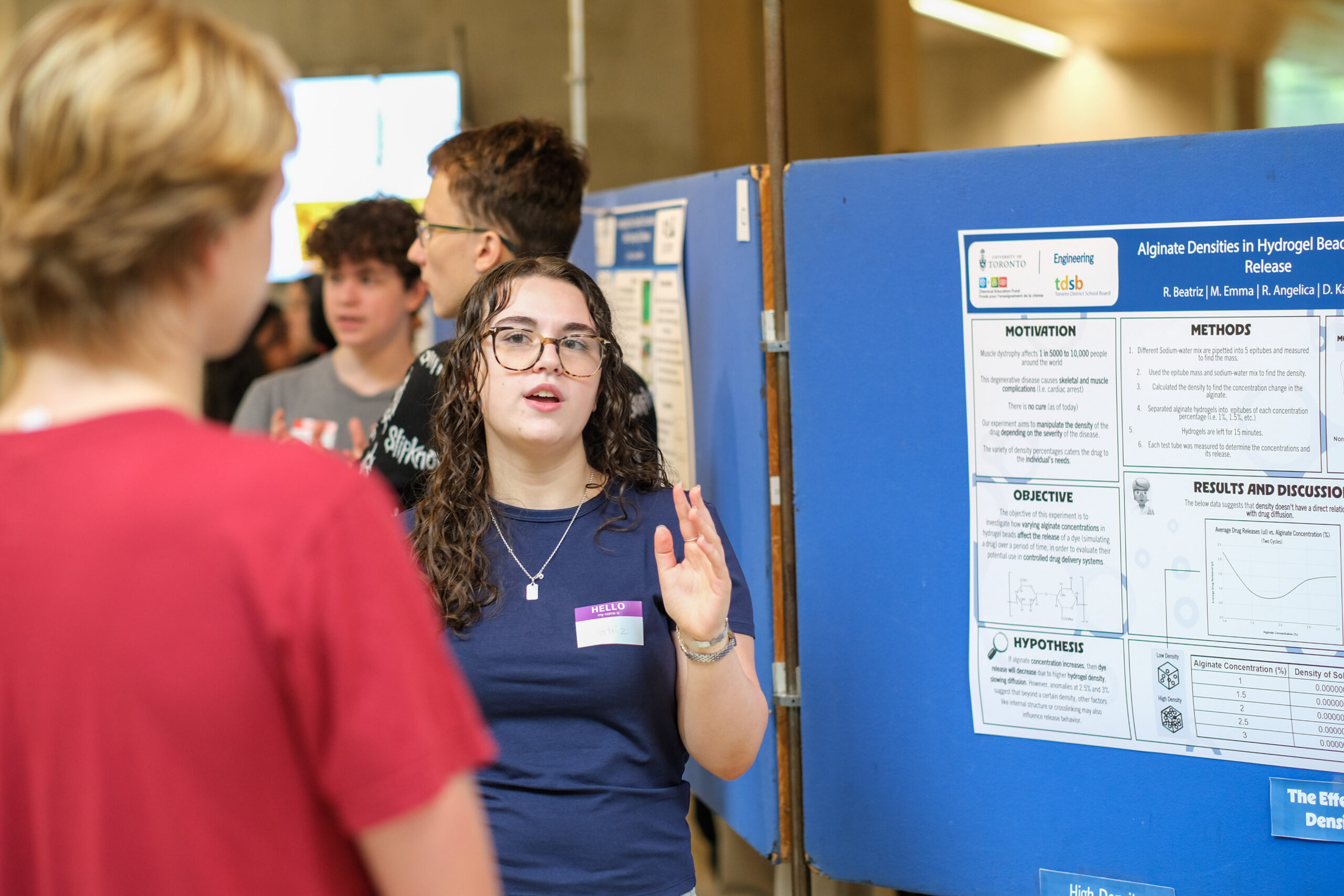
Discovery Program marks 10 years of STEM outreach for Toronto high school students
On June 5, 2025, the University of Toronto’s Myhal Centre hosted an end-of-semester program symposium experience for approximately 300 senior high school students from 4 TDSB partner schools. This symposium was particularly special, not just because it hosted the greatest number of participants in a single semester but because it marked the 10th anniversary of the Discovery Program, an outreach initiative designed to introduce high school students to university-level science, technology, engineering and mathematics (STEM) through hands-on learning.
The program is led by Professor Dawn Kilkenny, along with a team of graduate students primarily from the Institute of Biomedical Engineering (BME). Since its launch in 2016 as a pilot with a single Toronto District School Board (TDSB) high school, the Discovery Program has expanded to partner with 4 schools in the Greater Toronto Area and has engaged over 2000 students.
The program structure includes four full-day sessions held on U of T’s campus. During these sessions, students work in teams on curriculum-linked projects in biology, chemistry, or physics, under the guidance of graduate student mentors. Projects are designed to apply scientific principles to real-world problems and have included topics such as DNA analysis, hydrogels, and assistive device design. Each term concludes with a student presentation session attended by U of T faculty members, program volunteers, and the public.
“The program emphasizes experiential project-based learning,” says Professor Kilkenny. “Students are given a scientific problem and with mentorship of U of T student volunteers and classroom teachers, work throughout the semester to develop potential solutions. In addition to engaging with STEM resources beyond the typical high school classroom, participants develop comfort working in on-campus teaching spaces and learning about the transition to post-secondary study.”
Discovery was designed to improve access to experiential STEM education for students from schools with limited resources. Participants often have limited exposure to university environments or lab-based learning. By providing access to U of T labs and equipment at no cost, the program aims to make STEM fields more accessible and relevant. Entire class cohorts are invited to ensure broad participation and reduce barriers to engagement.
According to internal program surveys, more than 75% of past participants indicated an increased interest in pursuing STEM studies at the post-secondary level. The program’s outreach efforts have been recognized through multiple sources of funding. In 2017, Discovery received its first grant from the Natural Sciences and Engineering Research Council of Canada’s (NSERC) PromoScience initiative, valued at over $22,000. A second PromoScience grant, awarded in 2022, provided an additional $114,900 in support. Over the years, the program has also been funded by the University of Toronto’s Access Programs University Fund (APUF) in 2020, the Faculty of Applied Science & Engineering Dean’s Strategic Fund, the Chemical Institute of Canada, and individual donors. This broad base of support has helped sustain and expand Discovery’s programming, ensuring continued access to hands-on STEM experiences for high school students from underrepresented communities.
The Discovery Program is supported by a team of 70 graduate student volunteer mentors from across U of T’s STEM departments over the years. This year, program co-directors Nicolas Ivanov and Nhien Tran-Nguyen work closely with a leadership team including Reke Avikpe, Derrick Lim, Kimberly Seaman, and Ruonan Cao. Collectively, student volunteers assist with project development, student instruction, and logistical support.
In addition to local recognition, the Discovery Program’s program framework and outcomes have been presented at several national and international academic conferences, including the Biomedical Engineering Society Annual Meeting, the Canadian Engineering Education Association Conference, and the American Society for Engineering Education Conference. Outcomes have also been published in the journals npj Science of Learning and Biomedical Engineering Education.
Ten years in, the Discovery Program continues to grow and evolve. With new schools joining the initiative and fresh ideas brought forward each year, the team remains committed to one goal: showing students that science is not just something you learn from a textbook—it’s something you can do, discover, and be a part of.
